Virtual Science Talks: 60th Anniversary Series
Join us in celebrating 60 years of environmental discoveries and conservation breakthroughs! Our free evening webinar series features talks from Smithsonian ecologists and scientists across the country, highlighting the research leading us to a more resilient future. These talks are hosted entirely online (not in person). Webinars air on Zoom every third Tuesday of the month at 7pm Eastern, January through October, unless otherwise noted. All our talks are recorded. By signing up online, you'll be able to watch live and receive a link to the recording after the event. Closed captions are available at the event and on the recordings. Scroll further down to see recordings and slides from past years.
Subscribe to our email list to receive updates about virtual lectures and other upcoming events.
Upcoming 2025 Webinars
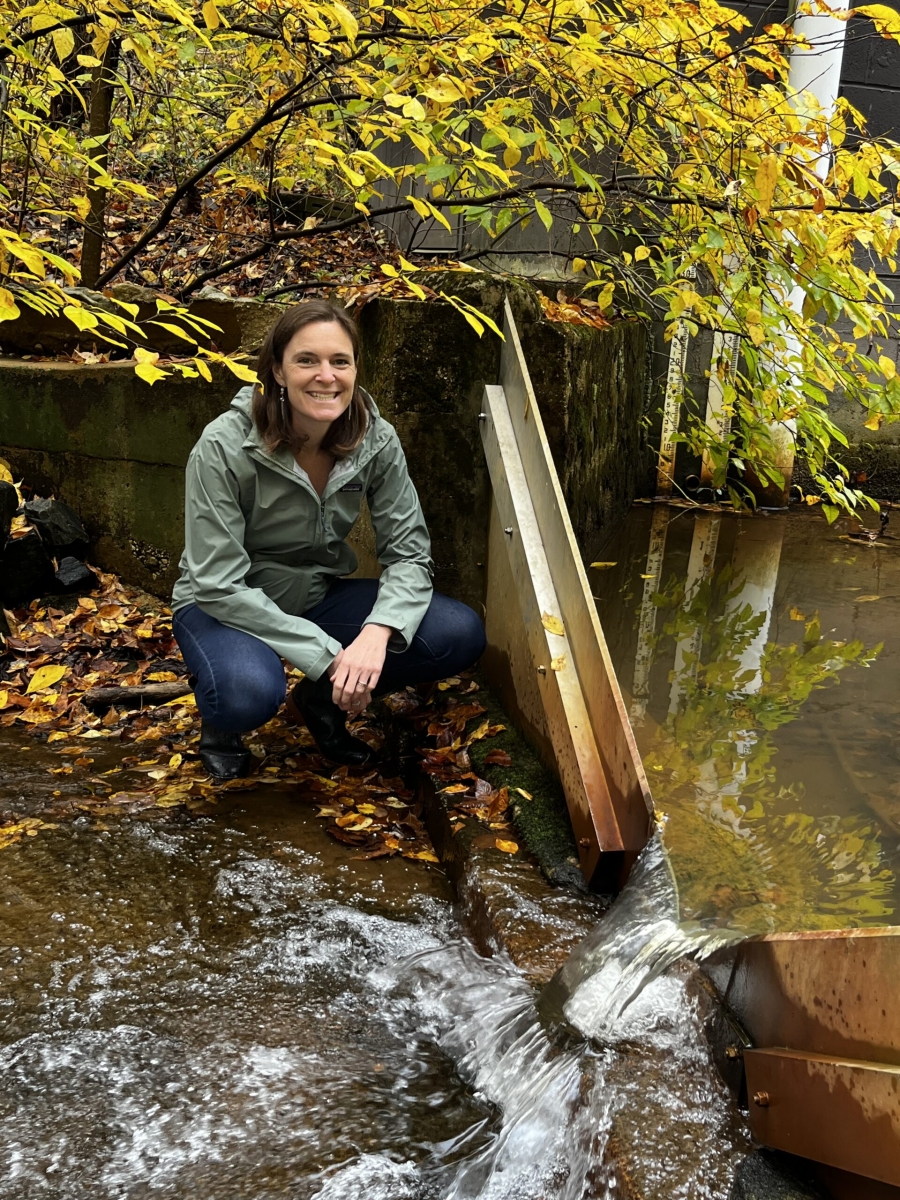
Photo: Rebecca Hale (Credit: Kristen Goodhue)
From Trash to Treasure: Reconnecting with Urban Streams
Tuesday, July 15, 7-8:30pm
Speaker: Rebecca Hale, SERC senior scientist
We often think of cities in opposition to nature. But cities have a rich natural history, including many freshwater ecosystems. Urban streams and rivers have been used as dumps for human waste and trash and have been buried, channeled or armored to protect cities from flooding. But urban streams also provide important sources of water, spiritual values, recreation, and an opportunity to connect with nature. On July 15, urban stream ecologist Rebecca Hale will reveal how people are creating new relationships with streams and rivers that reconnect city dwellers with urban nature and each other.
Sign up on Zoom to watch live or on demand
Past Webinars
Recordings for many of our virtual talks are available. Some were only available for a limited time, owing to photo permissions. To enable closed captions on our recordings, click on the CC icon on the lower right of the video screen. If you don't see a link to the lecture you'd like to view, a copy may be available upon request. Email Kristen Goodhue (goodhuek@si.edu) to find out more.

Chris Hopkinson (front) paddling on the Chesapeake Bay (Credit: Bay Paddle)
Film Screening: Power of the Paddle
Tuesday, June 17, 7-8:30pm (online only)
Speaker: Chris Hopkinson
In summer 2020, Chris Hopkinson embarked on an unprecedented journey to paddle the entire length of the Chesapeake Bay on a stand-up paddle board. The trip spanned nine days and over 200 miles, and raised enough money to plant 18 million new oysters in the Bay. On June 17, join Chris for a live screening of "Power of the Paddle," a 26-minute documentary chronicling his voyage. As part of the event, Chris will share more details about his trek and how paddlers can help the Bay today. Live Q&A to follow. A recording of the event will be available through July 16. Film produced and directed by Katie Sheridan.
Sign up on Zoom to watch recording
Recording available through July 16

Jessica Ware (Credit: Denis Finnin)
Dragonflies From the Arctic to the Tropics
Tuesday, May 20, 7-8:30pm ET (online only)
Speaker: Dr. Jessica Ware, American Museum of Natural History
Dragonflies, damselflies and their ancestors were among the first creatures fly—before birds, bats or pterosaurs. On May 20, explore the origins of the Odonata insects with Dr. Jessica Ware, an entomologist at the American Museum of Natural History. Using a large genomic dataset, scientists are unlocking their evolutionary history. By studying the tree of life of Odonata, scientists are beginning to understand how flight first evolved in these enigmatic insects.
Sign up on Zoom to view recording

Alison Milligan (Credit: Michael Milligan)
Creating a Homegrown National Park® in Your Home or Community
Tuesday, April 15, 7-8:30pm ET (online only)
Speaker: Alison Milligan, Master Naturalist and Watershed Steward
Interested in creating a Homegrown National Park? Not sure why it matters, how to begin…or what a “Homegrown National Park” even is? On April 15, Master Naturalist and Watershed Steward Alison Milligan will explain how this grassroots movement is bringing the life-preserving powers of national parks to communities across the country. She’ll outline how they can solve common landscaping problems while protecting the watershed, restoring biodiversity and adding value to your home. Using plants native to the Mid-Atlantic, she’ll walk through multiple before-and-after examples that illustrate the beauty of native flora and fauna.
Sign up on Zoom to view recording

Greg Kearns (Credit: Patuxent River Park)
Ospreys on the Patuxent
Tuesday, March 18, 7-8:30pm ET
Speaker: Greg Kearns, Patuxent River Park
Join us to learn about ospreys, the often-seen “fish hawk” of local rivers and the Chesapeake Bay, with Patuxent River Park's senior naturalist Greg Kearns. Roughly one-fourth of the ospreys in the continental U.S. nest in Chesapeake Bay. But the birds suffered massive declines in the 1950s and 60s due to widespread use of the pesticide DDT. In this talk, Kearns will discuss osprey biology, his banding program with the public, reintroduction efforts, how this once-imperiled bird became a conservation success story and how ospreys are doing today.
Sign up on Zoom to view recording

Experimental chamber on the Global Change Research Wetland (Credit: Tom Mozdzer)
The Future of Climate: What Three Generations of Scientists Revealed
Tuesday, Feb. 18, 7-8:30pm ET
Speakers: Dr. Bert Drake, Dr. Pat Megonigal and Jaxine Wolfe (SERC)
In 1987, the Smithsonian launched a futuristic experiment that would transform how we think about climate. Inside small experimental chambers, a few scientists doubled the amount of carbon dioxide to see how wetland plants would cope. Today, that project is the world’s longest-running experiment on plants and rising carbon dioxide. And its home, the Global Change Research Wetland, now has six long-term experiments simulating different future climate scenarios, from higher carbon dioxide and hotter temps to sea level rise.
On Feb. 18, join us for a special panel with three generations of scientists at the Smithsonian. Meet Bert Drake, creator of the 1980s experiment that began it all; Pat Megonigal, the current director of the Global Change Research Wetland; and Jaxine Wolfe, a technician studying wetland “blue carbon” around the globe. Find out what we know for certain, what mysteries remain, and why wetlands may be one of Earth’s greatest hopes for a resilient future.
Sign up on Zoom to view recording

Staghorn coral (Acropora cervicornis) by James G. Douglass, via iNaturalist (CC-BY-NC-4.0)
Saving Coral Reefs in the Sunshine State, with Mote Marine Laboratory
Tuesday, Jan. 21, 7-8:30pm ET
Speaker: Dr. Erinn Muller, Mote Marine Laboratory
Florida's coral reefs have lost over 95% of their living coral cover over the last 50 years and are on the brink of functional extinction. In our first evening science talk of the year, Erinn Muller will reveal how scientists at Mote Marine Laboratory are meeting the dire need for active coral restoration. She’ll touch on methods like coral nursery rearing and outplanting, and present the latest research helping restored corals resist disease and adapt to climate change. She will also highlight the importance of live coral biobanking and cryopreservation. In the race against environmental degradation, Mote scientists have created an International Coral Gene Bank as a “Noah’s Ark for coral species preservation.”
Sign up on Zoom to view recording

North American beaver, Castor canadensis. (Credit: Ellyne Geurts, via iNaturalist)
Dam It: Partnering With Beavers to Restore the Planet
Tuesday, Oct. 22, 7pm ET
Speaker: Ben Goldfarb, environmental journalist
Can we learn to embrace the much-maligned beaver? In his book "Eager: The Surprising, Secret Life of Beavers and Why They Matter," environmental journalist Ben Goldfarb reveals that our modern conception of a healthy ecosystem is wrong, distorted by the fur trade that once eliminated millions of beavers from North America’s waterways. The consequences were profound: Ponds drained, wetlands dried up and species from salmon to swans lost vital habitat. Today, a growing coalition of “Beaver Believers”—including scientists, farmers and passionate citizens—recognizes that ecosystems with beavers are far healthier than those without them. From the Nevada deserts to the Scottish highlands, Believers are hard at work restoring these industrious rodents to their former haunts. In his talk on Oct. 22, Ben will discuss the history and biology of this world-changing species; how beavers can help us fight drought, flooding, wildfire and climate change; and how we can coexist with this challenging but vital rodent.
Sign up on Zoom to view recording

Credit: Jodok, Public Domain, via Wikimedia Commons
Beyond Fossil Fuels: The Bumpy Transition to Clean Energy
Tuesday, Sept. 17, 7pm ET
Speaker: Dr. Sara Via, University of Maryland
Major transitions between technologies, like the switch from gas lights to electric lights, may seem quick when we look back on them. But transitions generally take decades. During this time, progress is inevitably punctuated by setbacks as proponents of the status quo push back against the forces of change. This bumpy path is playing out again in today’s transition from fossil fuel-based power to clean, renewable power from wind and solar. Transitioning our power system away from using fossil fuels to generate electricity will have a larger impact on reducing the future rate of climate change than any other single action, so it is crucial that we complete the transition as quickly as possible. In our September webinar, Professor Sara Via will discuss recent progress in the all-important transition to clean energy, consider some of the barriers that are impeding that progress and outline how each of us may be able to help reduce those barriers.
Sign up on Zoom to watch recording

Showy lady's slipper (Cypripedium reginae), by David McAdoo
The Botany of Desire (And How I Got Hooked on Native Orchids)
Tuesday, Aug. 20, 7pm ET
Speaker: Dennis Whigham, Smithsonian Environmental Research Center
How do plants make a living? That question has propelled botanist Dennis Whigham for his nearly 47-year career with the Smithsonian. Orchids were especially bewitching. On Aug. 20, join Dennis for a journey of discovery through the orchid world. He’ll take you from their unlikely beginnings as “dust seeds,” to the microscopic fungi they depend on to thrive, to their quirky—or downright sneaky—strategies to get pollinated. He’ll also reveal some of the most shocking discoveries, including the realization that more than half our continent’s native orchids are in trouble. Discover how stewards across the continent are rallying to save native orchids through the North American Orchid Conservation Center, and what you can do to help ensure their survival.
Sign up on Zoom to watch recording

Juvenile eastern newt, or "eft." (Credit: Kerry Wixted)
Allies in Amphibian Conservation: Leveraging Partners for Success
Tuesday, July 16, 7pm ET
Speaker: Kerry Wixted, Association of Fish and Wildlife Agencies
From frogs to salamanders, amphibians are secretive but essential to our health and the function of our ecosystems. But despite their critical role, amphibians are facing a crisis: Over 40% are threatened with extinction. How can we reduce that loss? Join Kerry Wixted with the Association of Fish and Wildlife Agencies as we dive into the fascinating world of amphibian biodiversity in the eastern United States, a global amphibian hotspot. Learn about the alarming threats amphibians face, from habitat loss to climate change to disease, as well as rays of hope. Kerry will cover the inspiring efforts of Partners in Amphibian and Reptile Conservation (PARC) and their dedicated partner network working at local, regional and national levels to combat these threats and ensure a future for our amphibians.
Sign up on Zoom to watch recording
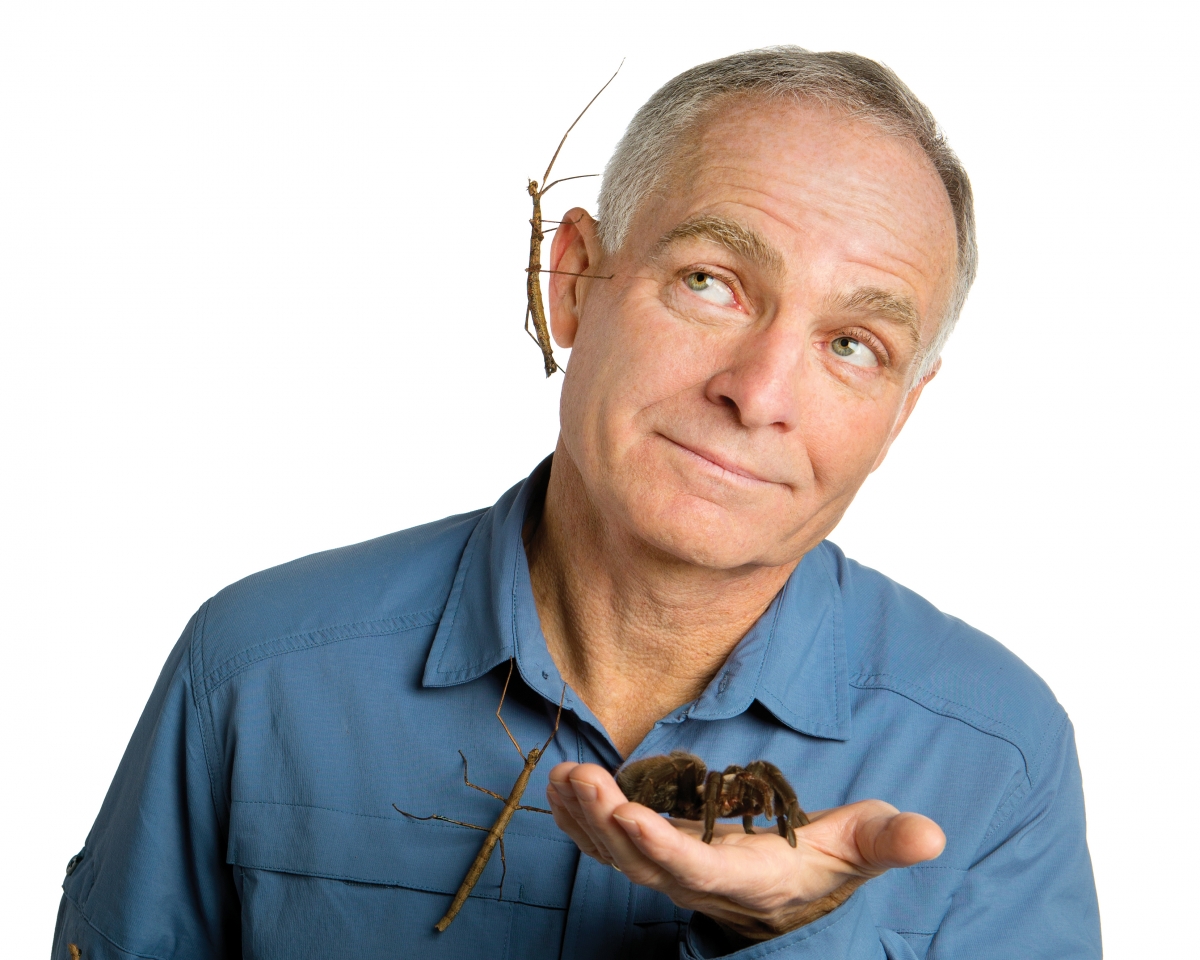
Michael Raupp (Credit: University of Maryland)
What a Warming World Means for Plants, Pests and Pollinators
Tuesday, June 18, 7pm ET
Speaker: Dr. Michael Raupp, University of Maryland
How will a hotter planet reshape the insect world? In our June evening webinar, join entomologist and author Michael Raupp for a look at the future of insects, both pests and pollinators. He will reveal how climate change is shifting weather patterns around the globe, and what that means for insects and mites in the mid-Atlantic. Learn how rising temperatures impact insect abundance, distributions, seasonal behaviors, and the web of interactions among plants, herbivores and their natural enemies.
Sign up on Zoom to view recording
(Note: Fast forward from 46:00 to 59:50 to skip the technical glitch where slides stopped sharing)
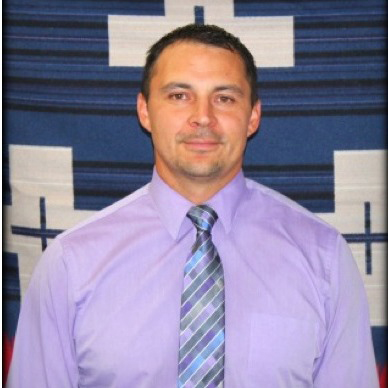
Photo courtesy of Cody Desautel
How a Return to Tribal Management is Restoring Landscapes
Tuesday, May 21, 7pm ET
Speaker: Cody Desautel, Confederated Tribes of the Colville Reservation
Tribal people have lived in North America for at least 10,000 years, shaping how the landscape evolved and functioned. During that time, they developed cultures and traditions that stressed the obligation tribal people had to the foods, medicines and places that sustained and defined their way of life. However, disease and settlement disrupted the balance, replacing it with the extractive management approach that has dominated the landscape for the past three centuries. On May 21, discover how a return to tribal practices can help restore that balance. Cody Desautel, executive director of the Confederated Tribes of the Colville Reservation in northern Washington state, hosts our next Life on a Sustainable Planet webinar. He’ll reveal how the last 50 years have seen a resurgence of tribal self-determination, and how indigenous knowledge is helping reestablish healthy relationships between people and the land.
Sign up on Zoom to view recording
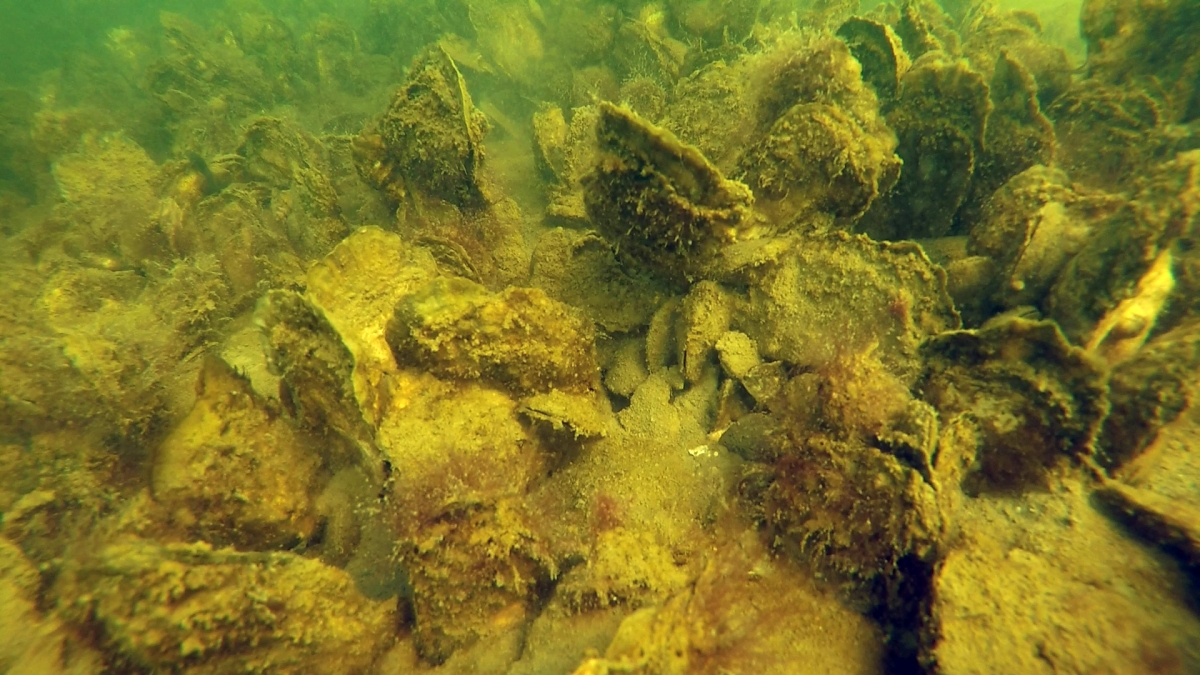
Credit: SERC Fisheries Conservation Lab
A Passion for Oysters Film Screening
Tuesday, April 16, 7pm ET
Speaker: Dr. Matt Ogburn, SERC Fisheries Conservation Lab
This Earth Month, join us for a special screening of "A Passion for Oysters." This 45-minute documentary chronicles the wild and convoluted story of Chesapeake oysters, through the eyes of watermen, scientists and historians. Discover how these silent shellfish have generated so much controversy, and where their best hope for the future lies. After the viewing, join SERC fisheries biologist Matt Ogburn, who was featured in the film, for a Q&A discussion. Produced by Tom Horton, Dave Harp and Sandy Cannon-Brown of the Bay Journal.
Sign up on Zoom to view recording
Watch "A Passion for Oysters" trailer

Dustin Schroeder (Credit: Matthew Chalker)
The Hidden Worlds Within Ice Sheets and Glaciers
Tuesday, March 19, 7pm ET
Speaker: Dr. Dustin Schroeder, Stanford University
The world’s ice sheets and glaciers are melting at unprecedented rates. Meanwhile, one of our best tools to quantify what’s happening beneath the surface remains largely untapped. Geophysicist Dustin Schroeder specializes in ice-penetrating radar: a powerful technique for studying ice sheets and glaciers on Earth and other planetary bodies. In this webinar, he will explore the hidden interiors of ice sheets through radar images and radar sounding data. When brought to their full potential, these tools can help us zero in on some of the most urgent questions surrounding Earth’s ice sheets and glaciers: How do they flow? What controls their behavior, evolution, and stability? And how will they impact sea level rise?
Sign up on Zoom to view recording

Photo courtesy of Martin Thiel
Taking the Pulse of the Ocean with MarineGEO—Global Issues and Local Lessons
Tuesday, Feb. 20, 7pm ET
Speaker: Dr. Martin Thiel, Smithsonian Environmental Research Center & MarineGEO Managing Director
Are fish in the Chesapeake as hungry as fish in Chile? Are marine communities in Alaska more resistant to invasive species than those in Panama or Chile? And can saving marine biodiversity help protect the ocean from climate change? Eleven years ago, Smithsonian scientists launched the Marine Global Earth Observatory (MarineGEO): a global network of partners dedicated to studying what makes marine ecosystems tick—and how they will respond to a changing climate. Starting with just four field sites in the Americas, today MarineGEO collaborators come from five continents. Together, they investigate pressing questions and uncover important local lessons that help inform ocean conservation. In our February science talk, take a tour of the world's coastal waters with Martin Thiel, managing director of the MarineGEO network. He will reveal what MarineGEO has learned about what it takes to keep marine ecosystems working, and where we can best place our hope for the future of the ocean.
Sign up on Zoom to view recording
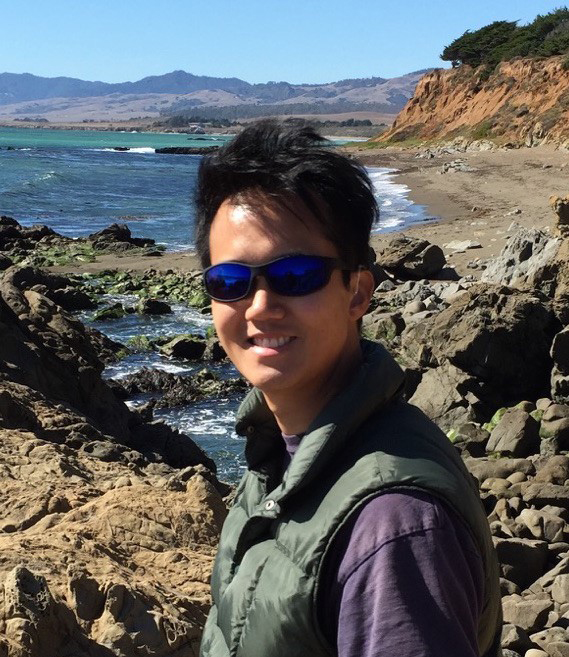
Andy Chang (Credit: Julia Blum)
Climate Extremes: What's the Forecast for Invasive Species?
Tuesday, Jan. 16, 7pm ET
Speaker: Dr. Andy Chang, Smithsonian Environmental Research Center (Marine Invasions Lab, SERC West)
As the planet heats up, non-native species all over the U.S. are pushing north to follow the warmer weather. But the simple narrative doesn't end there. Dr. Andy Chang, lead marine biologist for SERC's California branch, has tracked the movement of species introduced by human activity to San Francisco Bay and the California coast for the past two decades. In addition to northward and upstream migrations in warmer years, his team has also noticed species getting wiped out in years of intense rainfall. In this talk, he'll reveal how climate change and extreme weather like droughts and floods are changing the seascape for invaders. He'll also highlight how countries can use this knowledge to help stop nascent invasions before they get a foothold, in San Francisco Bay, Chesapeake Bay and around the world.
Sign up on Zoom to view recording

Jessica Fanzo (Credit: Derek White)
Keynote Robert Lee Forrest Lecture: What's for Dinner? Reconnecting Our Food With Our Climate
Tuesday, Oct. 24, 7pm ET
Speaker: Dr. Jessica Fanzo, Director of the Food For Humanity Initiative, Columbia University Climate School
Our food systems have become increasingly fragile in the face of climate change, ongoing conflicts and the long-tail of the COVID-19 pandemic. More frequent—and more intense—extreme events challenge food production, storage and transportation. At the same time, how we grow, process, package and transport our food often harms the environment, further accelerating climate change and biodiversity loss. Fixing this requires bridging the gap between food policies and climate policies. In our final lecture of 2023, join Dr. Jessica Fanzo for a look at sustainable food practices for a hotter, more turbulent world. Fanzo directs the Food for Humanity Initiative at the Columbia University Climate School. In this talk, she’ll reveal the must-do actions to nourish 9.7 billion people by 2050.
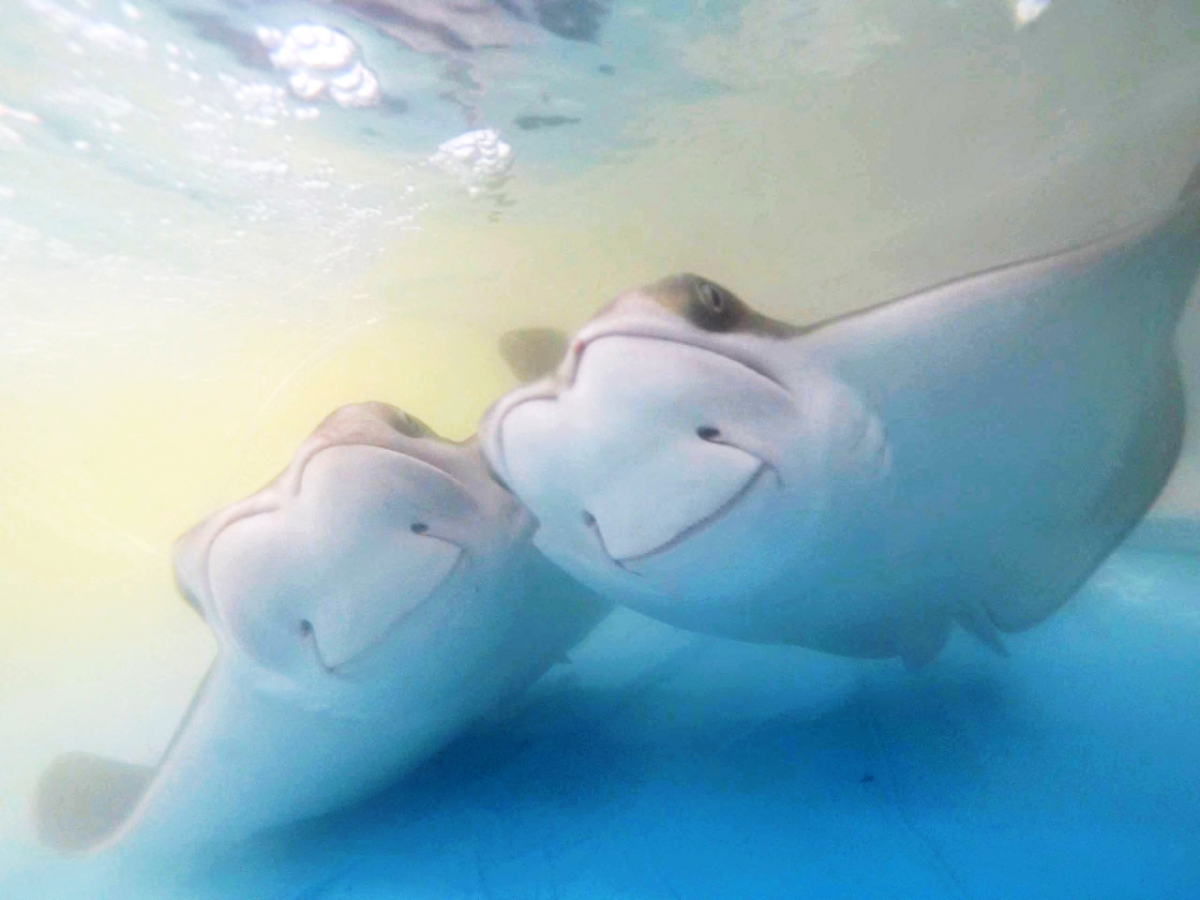
Cownose rays (Credit: SERC)
The Mysterious Migrations of Cownose Rays
Tuesday, Sept. 19, 7pm ET
Speaker: Dr. Matt Ogburn, SERC Fisheries Conservation Lab
Cownose rays are enigmatic, and sometimes controversial, summertime inhabitants of Chesapeake Bay. SERC’s Fisheries Conservation Lab has been tagging cownose rays and tracking their long-distance migrations since 2014. On Sept. 19 Dr. Matt Ogburn, head of the Fisheries Conservation Lab, will reveal some of the discoveries from this 9-year tracking effort. Their studies have uncovered the rays’ overwintering habitat, documented the different migration patterns of males and females, and revealed the environmental cues that help rays know when to start migrating. These findings are helping support conservation and management of this often misunderstood and overlooked stingray.
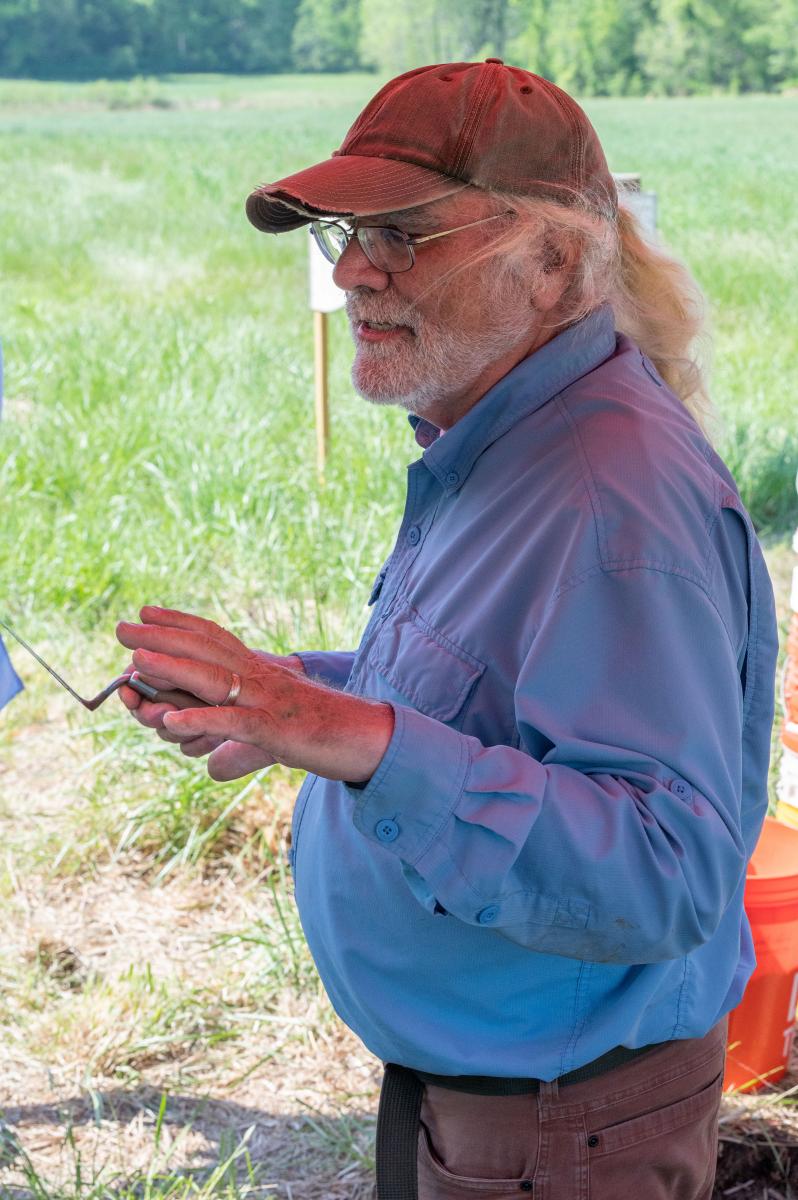
Jim Gibb, director of SERC Environmental Archaeology Lab (Credit: Jeremy Norwood/Norwood Photography)
Shifting Sands: Archaeology and the Transformation of Southern Maryland
Tuesday, Aug. 15, 7pm ET
Speaker: Dr. Jim Gibb, SERC Environmental Archaeology Lab
The landscape of southern Maryland bears little resemblance to what it was 300, 200 and even 100 years ago. Archaeology has uncovered the movement of soils and the creation of new hills and basins. Join Jim Gibb, head of the Smithsonian Environmental Archaeology Lab, for a journey across an ever-changing terrain. Starting at SERC’s historic 1735 Woodlawn House, he will narrate how a port town was buried in sediment, how garbage from Baltimore and Washington became a crucial resource for farmers, and how Eastern Europeans gradually came to reside on once-abandoned Maryland farms.
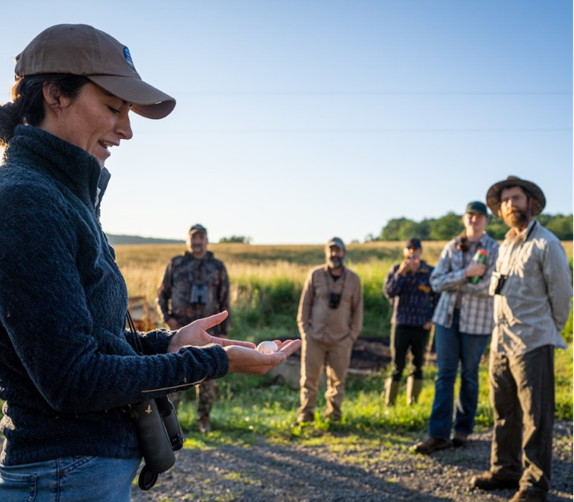
Amy Johnson (Credit: Hugh Kenny)
Virginia Working Landscapes: Connecting with Communities to Inform Research and Conservation
Tuesday, July 18, 7pm ET
Speaker: Dr. Amy Johnson, Smithsonian’s National Zoo and Conservation Biology Institute
Smithsonian’s Virginia Working Landscapes (VWL) program aims to study and promote the conservation of native biodiversity and sustainable land management through research, education, and community engagement. In collaboration with other Smithsonian units, as well as landowners, producers, federal and state agencies, universities, and local NGO’s, VWL conducts applied research at the intersection of conservation, agriculture, and communities. In this presentation, Dr. Amy Johnson, a Conservation Biologist at the Smithsonian’s National Zoo and Conservation Biology Institute and Director of their VWL program, will provide an overview of past and current research projects with case studies demonstrating how VWL is working with community partners to co-develop programs that bridge the gap between science and conservation implementation. Johnson’s current research focuses on identifying best practices to support nesting grassland birds, ecological responses to grassland restoration and management, and the human dimensions of conservation.
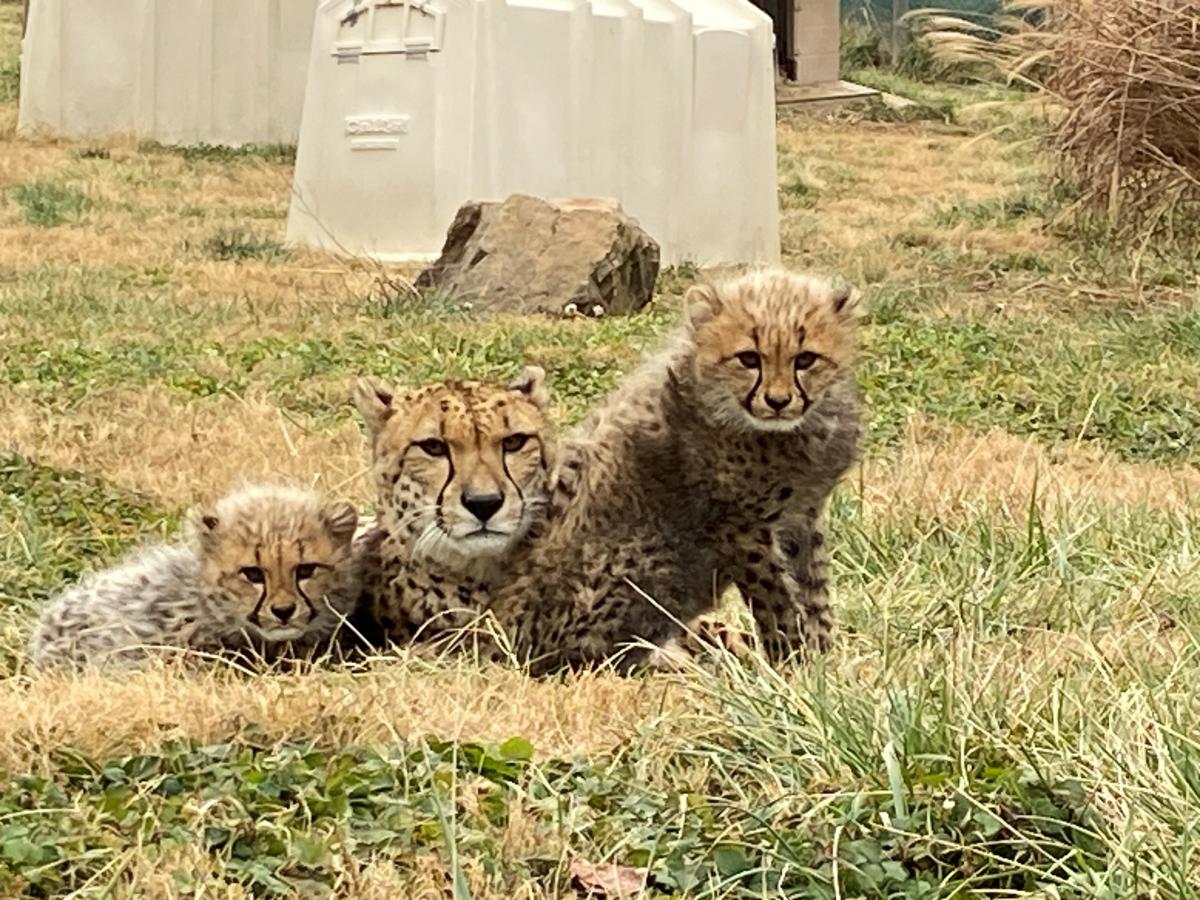
Cheetah mom, Amani, with her two cubs (Credit: Adrienne Crosier)
Breeding the Unbreedable: Assisted Reproduction in the Cheetah
Tuesday, June 20, 7pm ET
Speaker: Dr. Adrienne Crosier, Smithsonian's National Zoo and Conservation Biology Institute
The fastest land animal is quickly running out of time. As cheetah populations in the wild continue to decline, our zoo populations are becoming even more critical to the future of the species. In our June Earth Optimism webinar, learn about the difficulties of managing and reproducing these cats with Dr. Adrienne Crosier, a cheetah biologist with the Smithsonian’s National Zoo and Conservation Biology Institute. Adrienne will also offer an inside look at some of the cutting-edge techniques scientists are using to improve genetics and cheetah cub reproduction in zoo facilities.

Linsey Haram (Credit: Stephen Page)
Plasticene Seas – What Life on Floating Plastic Means For Our Ocean
Tuesday, May 16, 7pm ET
Speaker: Dr. Linsey Haram, U.S. Department of Agriculture
Millions of tons of plastic pollution enter the ocean each year. This global influx of plastic has devastating effects on marine life, including entanglement and plastic ingestion. In this talk, marine biologist Dr. Linsey Haram will reveal another unexpected consequence of rampant plastic pollution: the creation of artificial, floating habitat for coastal marine life in the open ocean. Dr. Haram will describe how her team studies life on these floating plastics in the North Pacific Subtropical Gyre (also known as the "Great Pacific Garbage Patch"), and the surprising results they’ve found to date. These discoveries raise many challenging questions about the future of our oceans in the context of the global plastic pollution crisis.
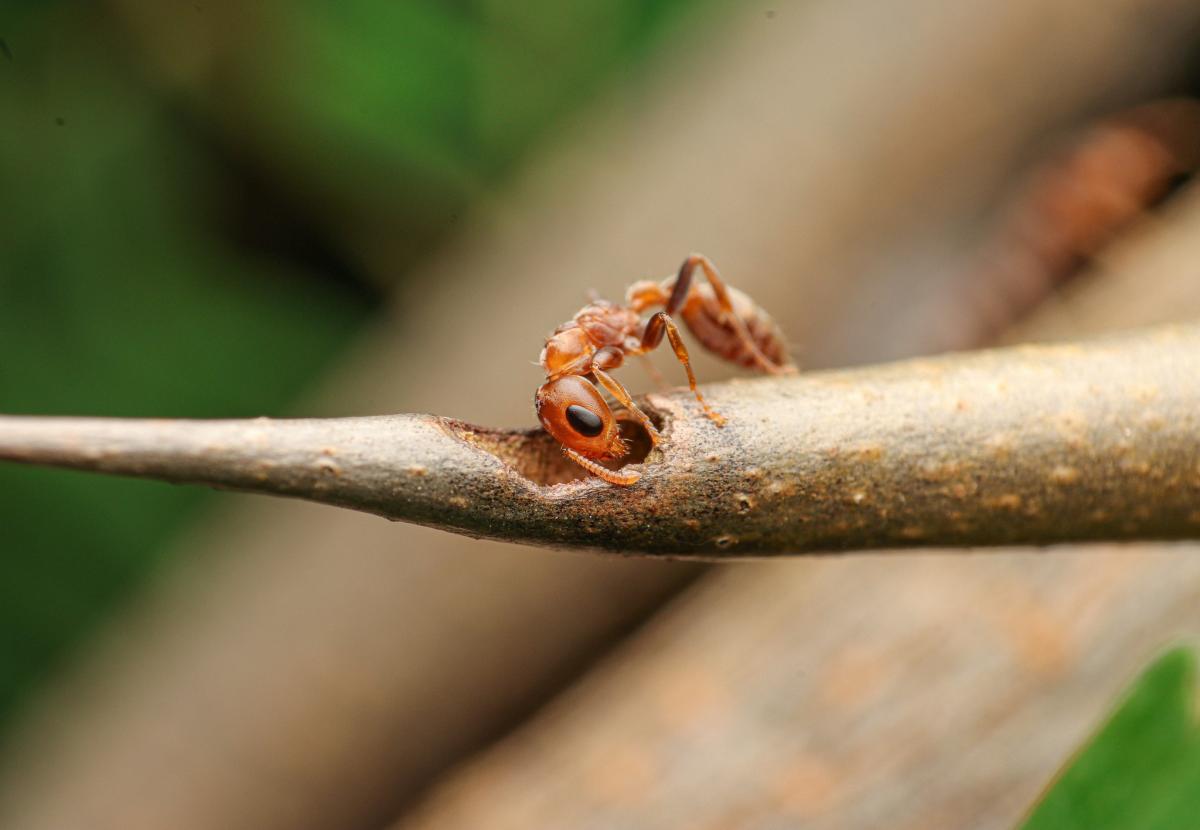
Acacia ant (Credit: Mason_S. Creative Commons License BY-NC-4.0)
The Secret Societies of Ants
Tuesday, April 18, 7pm ET
Speaker: Sabrina Amador-Vargas, Smithsonian Tropical Research Institute
Ant societies are fascinating examples of organization, but the coevolution of an ant society with a plant involved new task demands on the colony. In our April Earth Optimism Webinar, tropical biologist Sabrina Amador Vargas will take you inside the world of acacia ants and the acacia trees they depend on for survival. She’ll reveal how this mutualistic tree-insect relationship has shaped the behavior of acacia ants and the plant morphology. She’ll also highlight how these obligate relationships promote innovative behaviors in other organisms interacting with the ant-acacia mutualism.
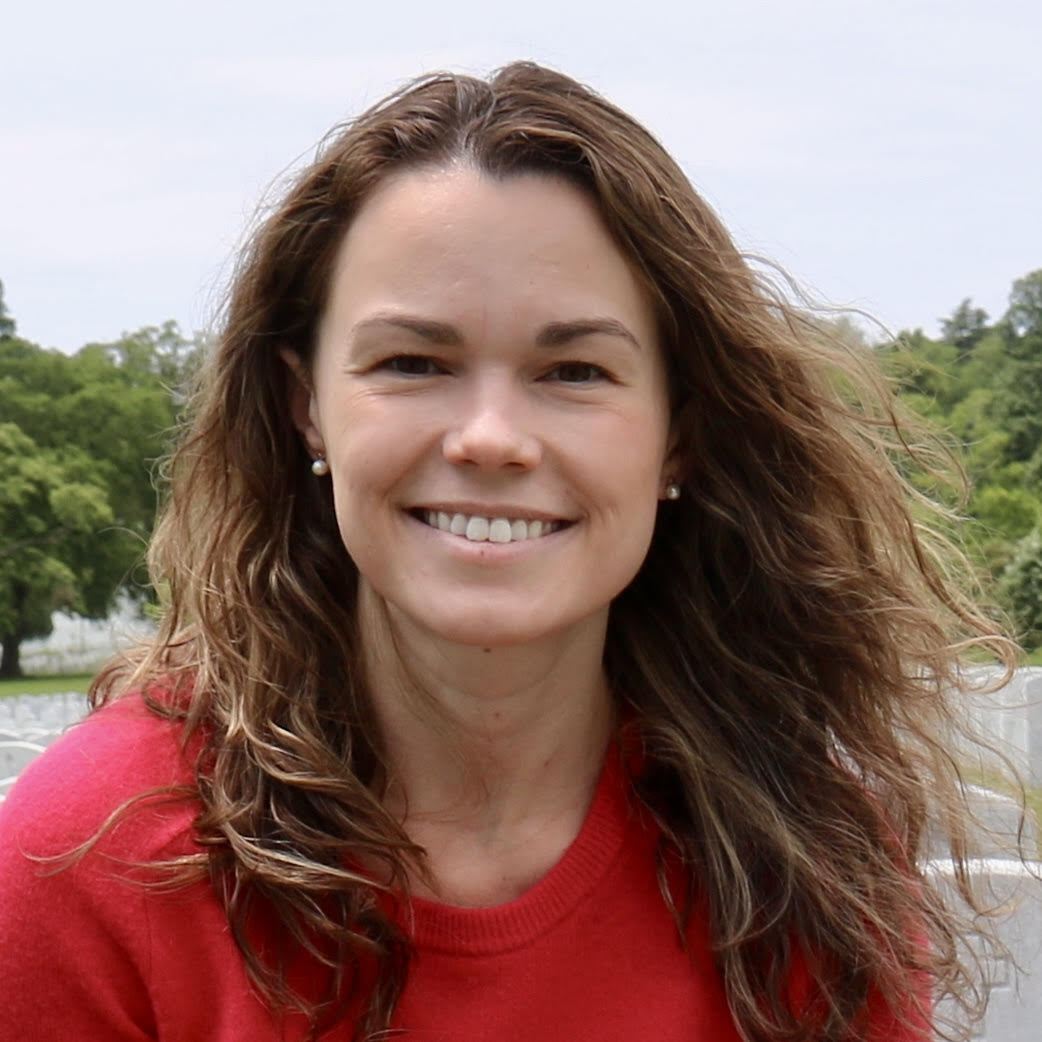
Holly Gallagher (Credit: Heather Shields)
Growing Climate-Resilient Gardens in the City
Tuesday, March 21, 7pm ET
Speaker: Holly Gallagher, National Wildlife Federation
Wildlife gardens attract and support important pollinators such as butterflies, birds, and bees. Pollination is essential to life on earth; most flowering plants, including fruits and vegetables, depend on pollinators to produce fruit and seeds, yet climate change is threatening the survival of many of these species. Join Holly Gallagher from National Wildlife Federation to learn what approach the non-profit organization has taken to growing climate-resilient, native plant gardens in urban environments and how to replicate that in your own backyard or community!
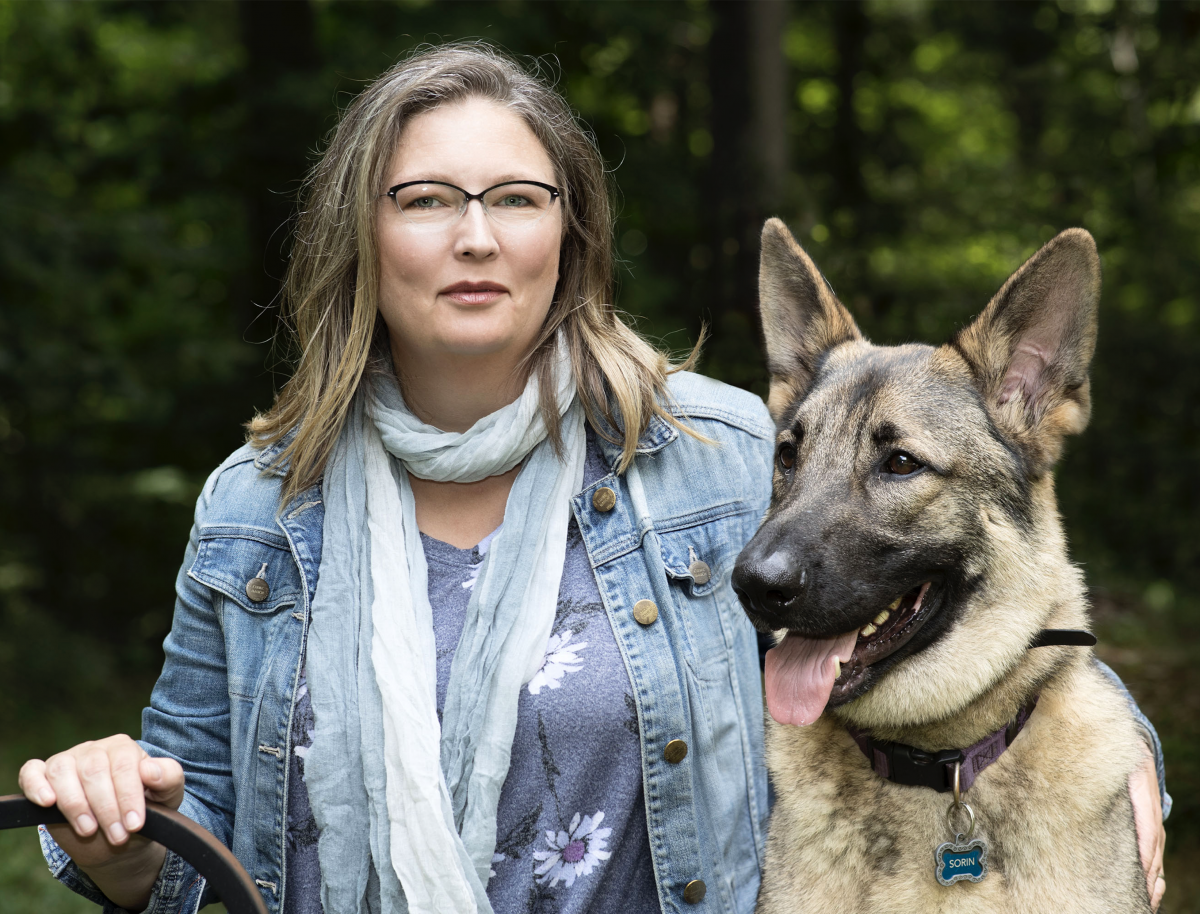
Kelsey Johnson (Credit: Dan Addison)
Saving the Darkness: How To Put A Dimmer on Light Pollution and Bring Back the Night Sky
Tuesday, Feb. 21, 7pm ET
Speaker: Dr. Kelsey Johnson, University of Virginia
How many stars can you see from your home? For many Americans, the answer is only a handful. Our ancestors once saw thousands. The growing flood of artificial light pollution, and disappearance of our night skies, are taking a toll on people and animals. But there are ways to combat it. Kelsey Johnson, University of Virginia astronomer and creator of the “Dark Skies, Bright Kids” program, has devoted her career to understanding the stars and preserving their beauty for future generations. In our February Earth Optimism lecture, she’ll reveal some of the surprising costs our 24-hour illumination takes on nature—and some surprisingly easy ways to fix it.
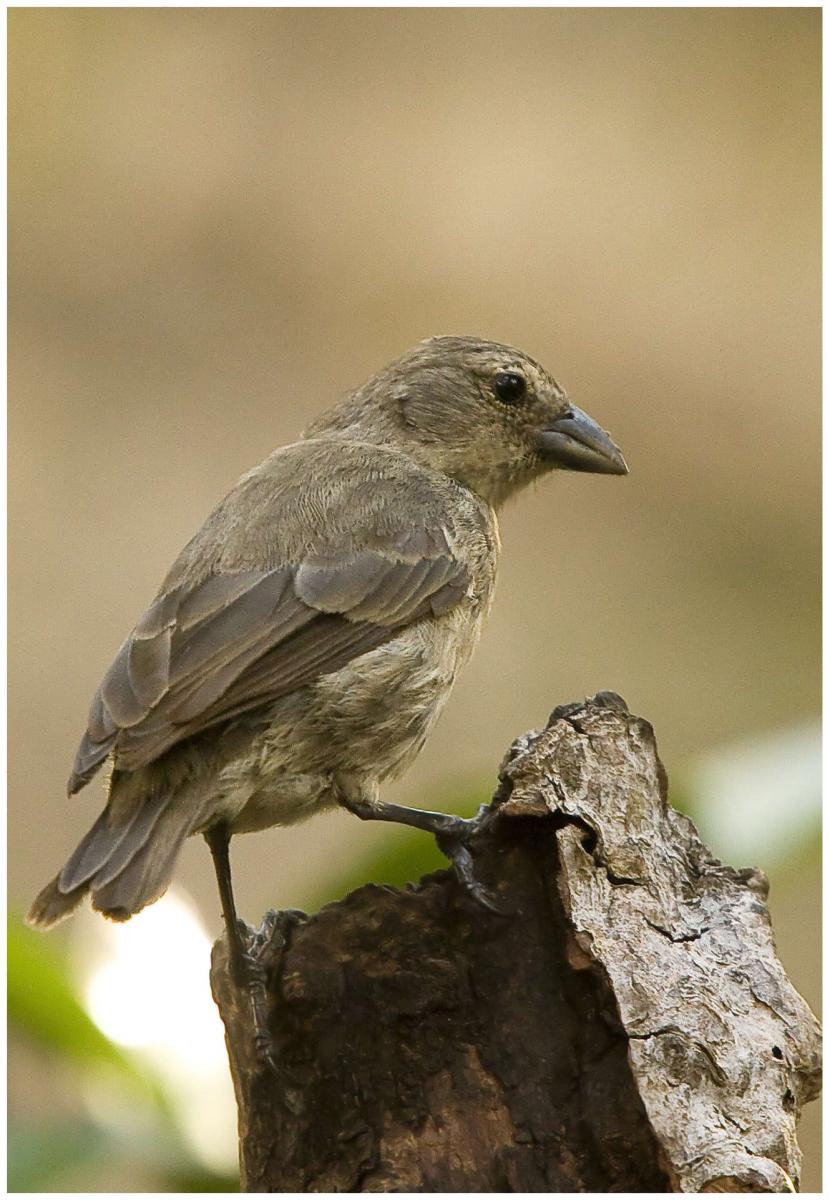
Mangrove finch, Camarhynchus heliobates. (Credit: Michael Dvorak. Creative Commons License CC-BY-2.5)
Mangroves and the Mangrove Finch in the Galápagos
Tuesday, Jan. 17, 7pm ET
Speaker: Dr. Candy Feller, SERC scientist emerita
Take a trip to the Galápagos Islands with mangrove ecologist Candy Feller, in the kickoff of our 2023 Earth Optimism webinars! Candy will introduce you to the mangrove finch, one of the famous “Darwin’s finches” that inspired the theory of evolution. Found only on the Galápagos, mangrove finches are on the verge of extinction, with only around 100 individuals left in the wild. In this talk, Candy will reveal the intricate connection between mangrove finches and the mangrove trees they call home. She’ll highlight how previously unknown interactions between the land and the sea on the Galápagos have created a unique environment that shaped the evolution of this endangered bird.
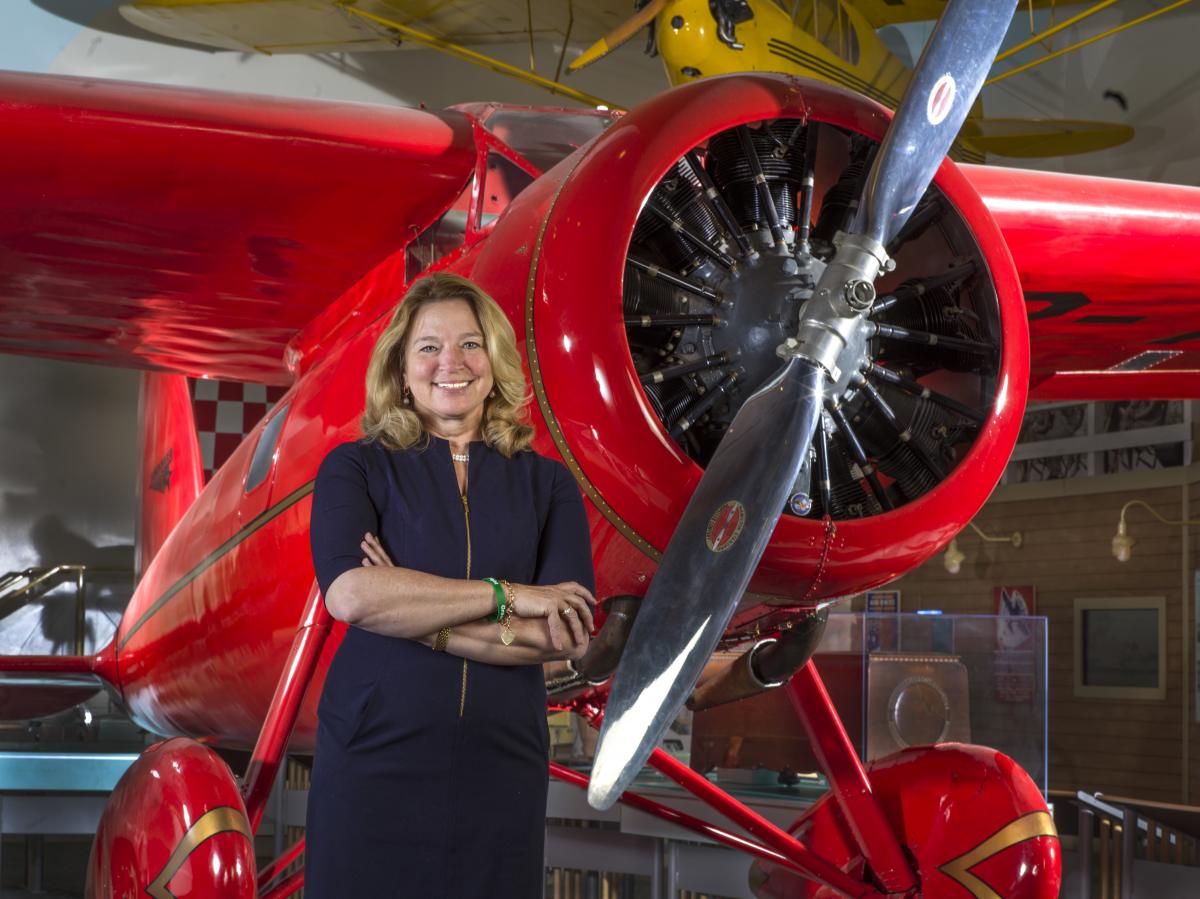
Ellen Stofan. Photo by Jim Preston, Smithsonian National Air and Space Museum (NASM2018-01471)
Robert Lee Forrest Capstone Webinar: Saving the Earth by Exploring the Stars
Tuesday, Oct. 18, 7pm ET
Speaker: Ellen Stofan, Ph.D., Smithsonian Under Secretary for Science and Research
In our finale Earth Optimism webinar of 2022, find out how going to space has helped improve live on Earth! Ellen Stofan will explore how satellite observations and other space technologies are transforming our view of Earth, and yielding new insights for keeping our home planet sustainable. Stofan is a planetary geologist who served as the first female director of the Smithsonian’s National Air and Space Museum and a former chief scientist for NASA. She now serves as the Smithsonian’s Under Secretary for Science and Research.
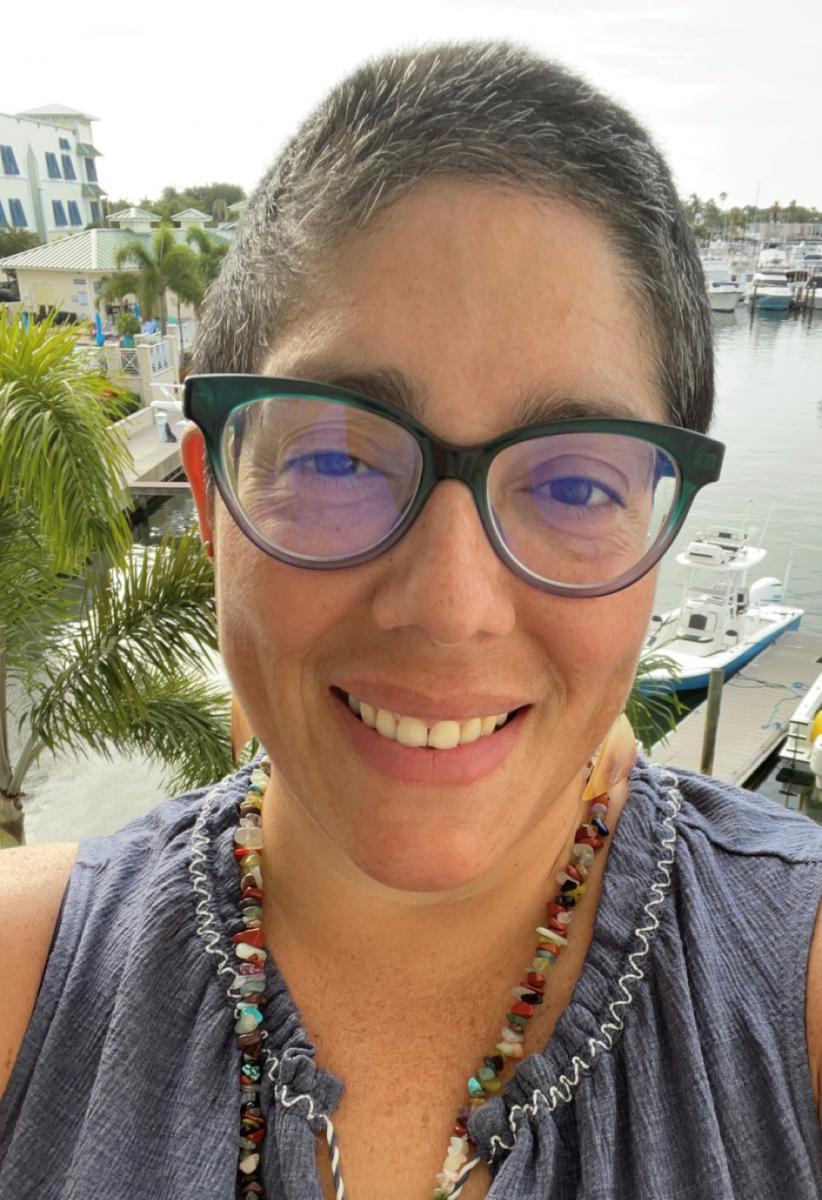
Brenda María Soler Figueroa
Bioluminescence to Invasions: The Fascinating World of Phytoplankton
"De la bioluminiscencia a las invasiones: el fascinante mundo del fitoplancton"
Tuesday, Sept. 20, 7pm ET
Speaker: Dr. Brenda María Soler Figueroa, Ph.D.
Bioluminescent bays and lagoons are rare ecosystems worldwide. But in Puerto Rico, you can often see this incredible spectacle. When the water gets agitated, thousands of microscopic phytoplankton produce a greenish-blue flash of light. On Sept. 20, join SERC marine ecologist Dr. Brenda María Soler Figueroa to hear about the importance of these unique ecosystems, and their current status in Puerto Rico, which she calls home. She’ll reveal how local communities are working to manage and protect the bioluminescent bays and lagoons on the island. She’ll also dive into her research at SERC, where her work with the center’s Marine Invasions Research Laboratory provides insights for reducing the introduction of potentially invasive phytoplankton. Este evento se traducirá al español! (This event will be translated into Spanish!)
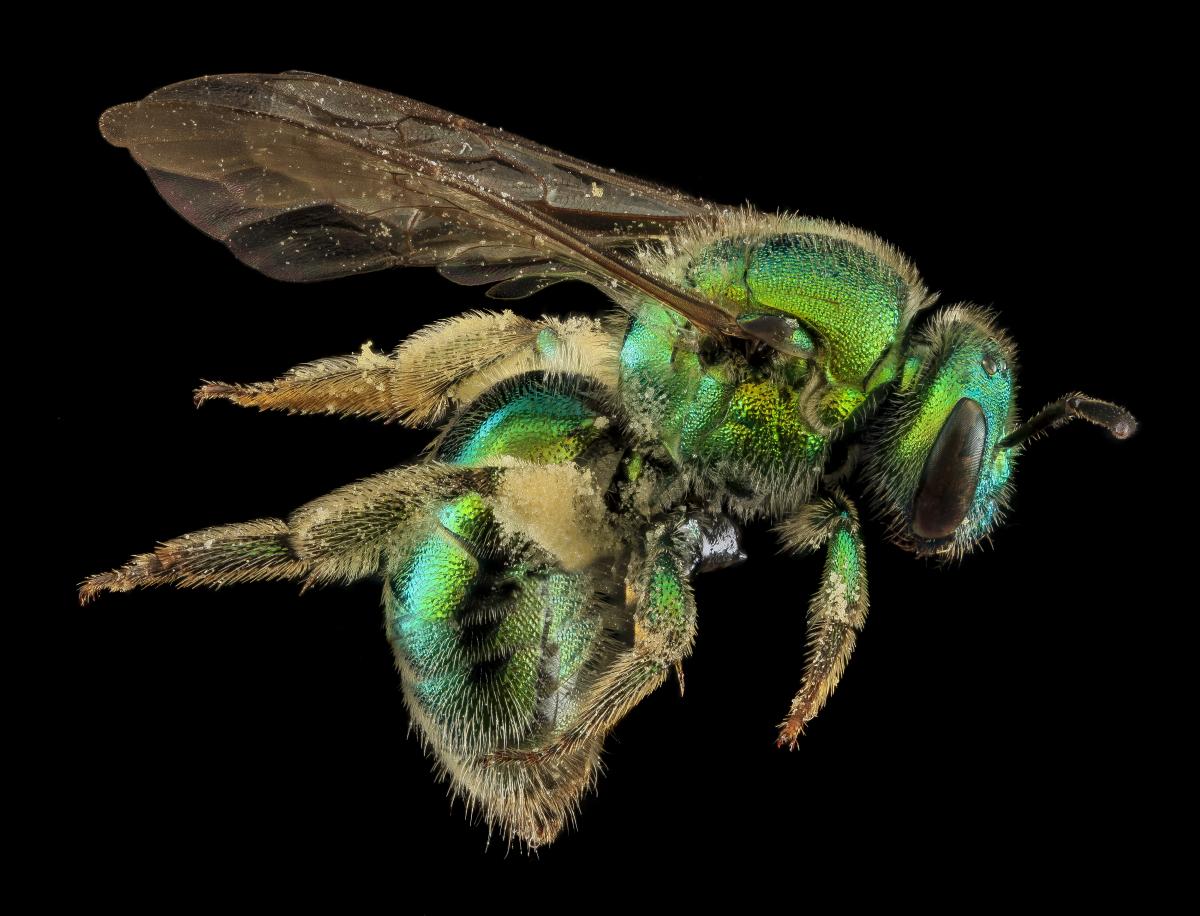
Photo: Sweat bee Augochloropsis metallica, by USGSBIML
Maryland's Native Bees: Where They Are, Why We Need Them
Tuesday, Aug. 16, 7pm ET
Speaker: Sam Droege, Patuxent Wildlife Research Center, USGS
There are roughly 450 species of bees in Maryland. Their numbers and ranges are driven by their deep and often very specialized relationships with flowering plants. In this Earth Optimism webinar, biologist Sam Droege of the Patuxent Wildlife Research Center will decode some of the patterns to those relationships, and how they shape where, when and how abundant bees are in the wild. They will also share some of the latest discoveries about these critical pollinators, and offer suggestions for how you can support them in your backyard.
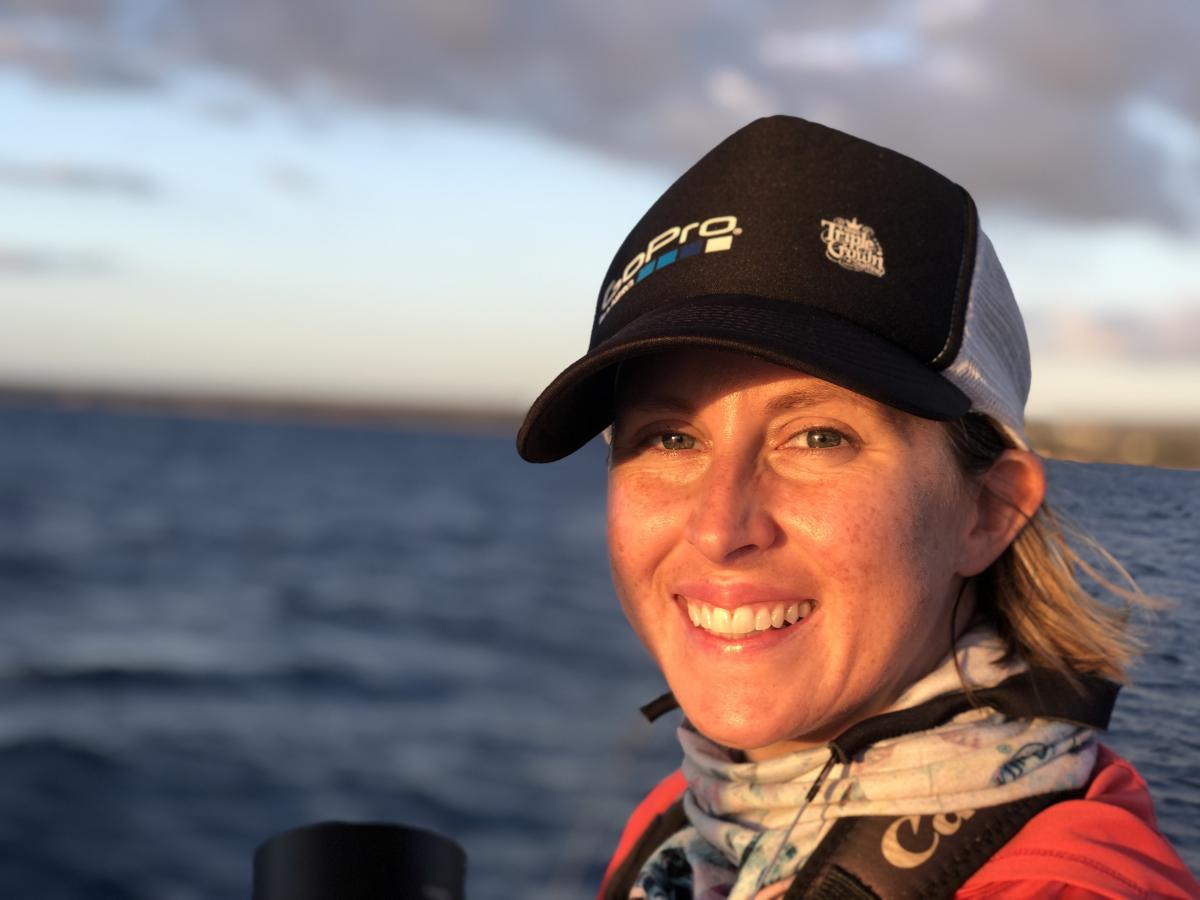
Stephanie Stack (Credit: Pacific Whale Foundation)
Bonus Lecture! Elevating Women in Science
"Aumentar la Participación de las Mujeres en la Ciencia"
Tuesday, July 26, 7pm ET
Speaker: Stephanie Stack, Pacific Whale Foundation
On the journey from student to scientist, there are pivotal moments where women stop pursuing STEM careers – a phenomenon that researchers have dubbed “the leaky pipeline.” Stephanie Stack, chief biologist with the Pacific Whale Foundation, has first-hand experience balancing motherhood with a fulltime career in science. In a special bonus lecture, she explains the barriers that exist to women progressing in their STEM careers and how we can work together to improve this situation. Este evento se traduce al español! (This event has Spanish translations!)
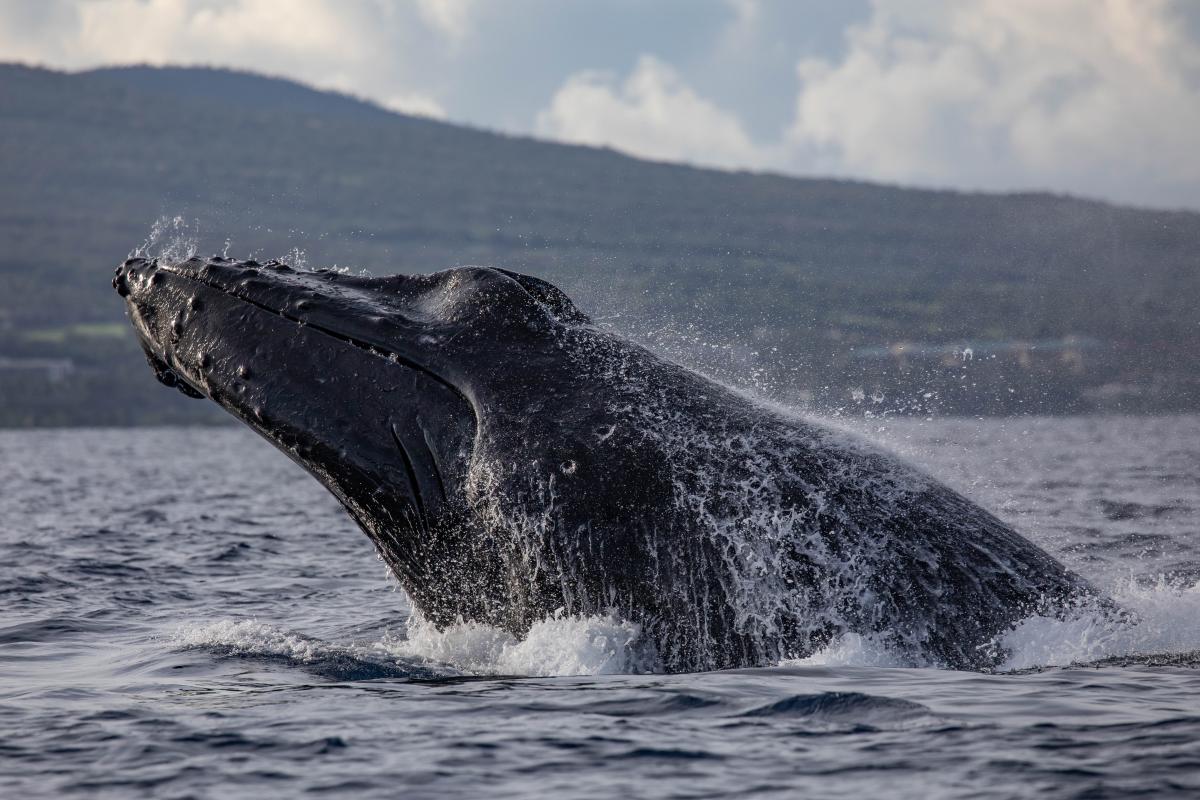
Humpback whale (Credit: Pacific Whale Foundation)
Hope for Humpbacks
Tuesday, July 19, 7pm ET
Speaker: Stephanie Stack, Pacific Whale Foundation
Humpback whales are a conservation success story, having largely recovered from the threat of commercial whaling. But they still need our help. In this webinar, biologist Stephanie Stack of the Pacific Whale Foundation will share tales from her 10 years of research on humpback whales. She will discuss the most urgent threats to whales today, why whales are critical for a healthy ocean, and the actions needed to protect these ocean giants.

Aitya Wells (Credit: Jonathan Bregel)
Advancing Equity in Urban Greenspace
Tuesday, June 21, 7pm ET
Speaker: Atiya Wells, Backyard Basecamp
At our June Earth Optimism webinar, hear from Atiya Wells, founder of the nonprofit Backyard Basecamp in Baltimore City. Atiya will highlight the importance of equity in landscape design, creation and community cultivation. With their BLISS Meadows project, Backyard Basecamp has reclaimed 10 acres of vacant land in their neighborhood to be used for environmental education and community greenspace, and to help communities of color reconnect with nature.
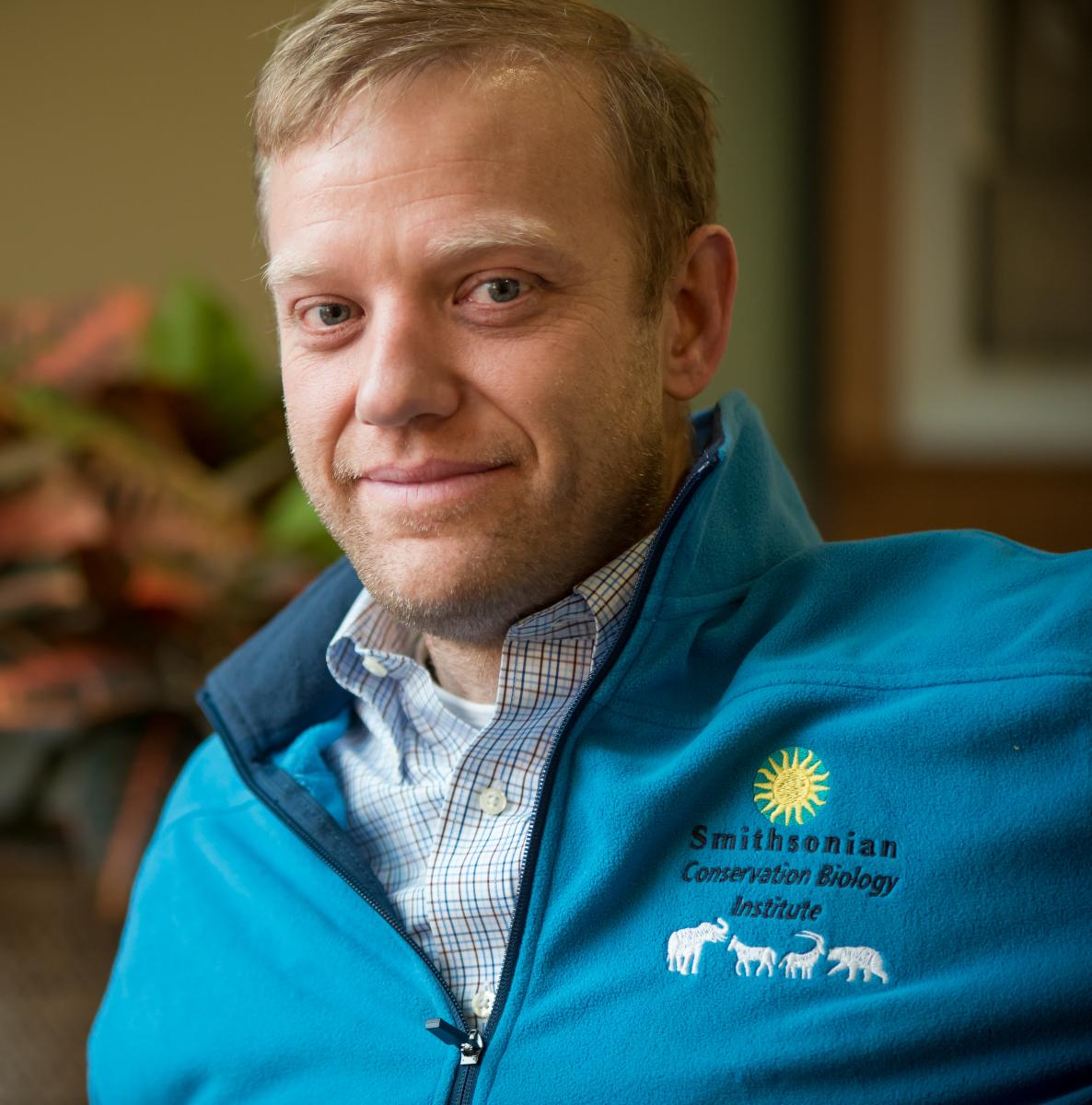
Jared Stabach (Credit: Ricardo Stanoss/Smithsonian Institution)
Following African Mammals with the Movement of Life
Tuesday, May 17, 2022
Speaker: Jared Stabach, Smithsonian Conservation Biology Institute
For over 100 years, the Smithsonian has been a leader in wildlife tracking, using the latest technologies to better understand animal movement and conserve their populations. Today those efforts have come together under a single network: The Movement of Life Initiative. In our May Earth Optimism webinar, join wildlife ecologist Jared Stabach for a journey into the Smithsonian's animal tracking and conservation activities in Africa. He'll take you to Chad, where the Smithsonian and partners have been reintroducing scimitar-horned oryx, once extinct in the wild. He'll then move on to Kenya, where they're using artificial intelligence to more effectively count wildebeest and other large mammals in high resolution satellite and aerial imagery. Finally, Jared will pan out to reveal how giraffe populations are rebounding across the continent.
Changing the Future Landscape of a Watershed, One Policy at a Time
Tuesday, April 26, 2022
Speaker: Matt Johnston, Environmental Policy Director for Anne Arundel County
The science has been clear for a long time: To protect streams—and the Chesapeake Bay—from pollution, it's imperative to reduce impervious surfaces like roads and parking lots. While science can define our problems and point us in the right direction, policy is a critical player in delivering solutions. On April 26, join us for a bonus Earth Optimism lecture with Matt Johnston, the director of environmental policy for Maryland's Anne Arundel County where the Smithsonian Environmental Research Center is based. He'll reveal several new policies Anne Arundel has pursued over the last few years to roll back the advancing impervious surfaces. Discover how one county is using science-based polices to create environmental success stories.
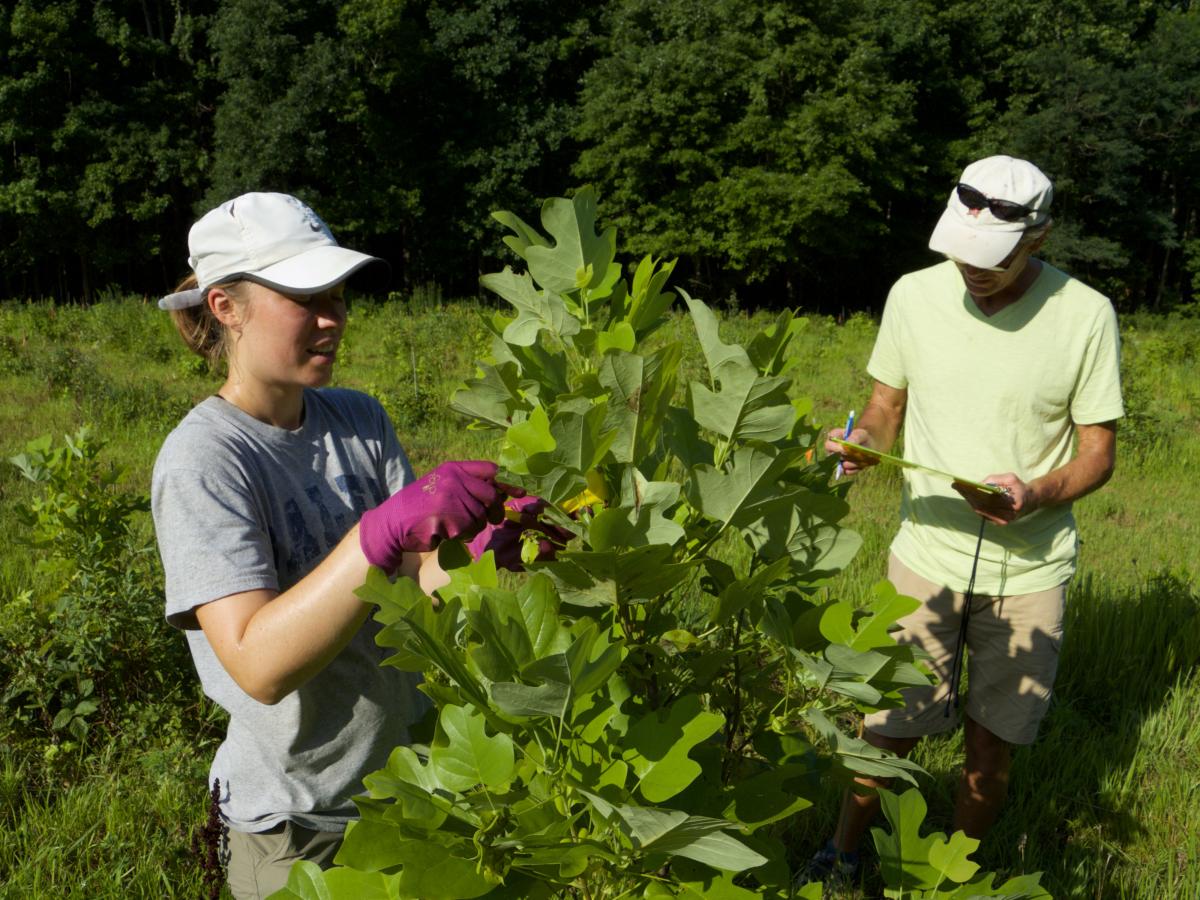
Jamie Pullen (left) in BiodiversiTREE. (Credit: SERC)
A Forest Restoration, Reimagined: A Decade of Diversity in BiodiversiTREE
Tuesday, April 19, 2022
Speakers: Dr. Rachel King and Jamie Pullen, SERC Terrestrial Ecology Lab
What happens when you take acres of abandoned farm fields and plant a forest on top of them? In spring 2013, scientists and volunteers planted 20,000 trees as part of a massive experiment known as BiodiversiTREE. Now starting its tenth year, the project has become the largest experiment on tree diversity and ecosystem function in North America. Join SERC postdoc Rachel King and head technician Jamie Pullen for a trek through the project’s biggest discoveries, in an Earth Optimism webinar specifically made for Earth Week. They’ll reveal how diversity shapes how the forest works, from the soil to the canopy. They'll also explore the ability of forests to withstand the uncertainties of blights and climate change, and how diversity can shape the hidden life that depends on forests. Finally, they will reveal what’s in store for the project over the next century.
Sign up on Zoom to watch the recording
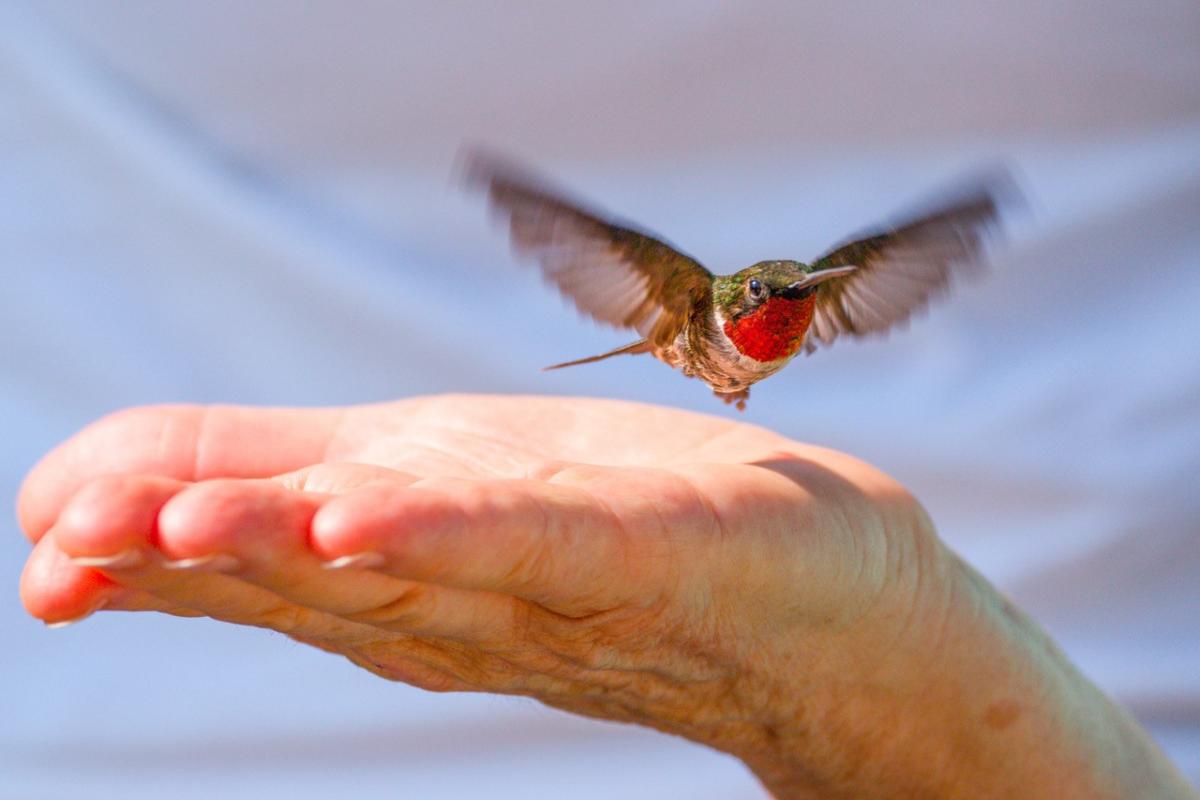
Male ruby-throated hummingbird being released after bird banding in Darlington, Maryland. (Credit: Barbara Saffir)
Spring Spectacles: When & Where to Find Jaw-Dropping Birds, Blooms & Beasts in the Mid-Atlantic
"Espectáculos de la Primavera: Dónde y Cuándo Podrás Encontrar Aves, Flores y Animales Asombrosos en el Atlántico Medio"
Tuesday, March 15, 2022
Speaker: Barbara Saffir, nature photographer & Virginia Master Naturalist
Learn when and where to find some of the Mid-Atlantic's most jaw-dropping plant and animal life, with nature photographer and Virginia Master Naturalist Barbara Saffir. In this joyful spring jaunt, she'll reveal wildflowers worthy of Monet; a bounty of beasts; and close-up encounters with cobalt-blue, sunflower-yellow and ruby-red breeding birds that visit the DMV each spring. More than half of this "virtual safari" will focus on birds, with award-winning photographs of migratory and resident birds that capture their cool behaviors. Other animals and wildflowers will also make an appearance. You'll learn about curious critters—such as backyard squirrels that "fly" and dazzling bugs typically overlooked by their human neighbors—and wildflower spectacles, including acres of blush-pink blossoms; pink, yellow, and purple native orchids; and miles of perky bluebells meandering along curving creeks. Este evento se traduce al español! (This event has Spanish translations!)
Sign up on Zoom to watch the recording
Mira la grabación con subtítulos en español
Para leer los subtítulos, dar clic en la CC icon. Los subtítulos comienzan en 1:21.
Download Barbara's guide to parks, wildlife apps and month-by-month natural spectacles (English)
Guía de parques, aplicaciones de vida silvestre y espectáculos naturales para cada mes (español)
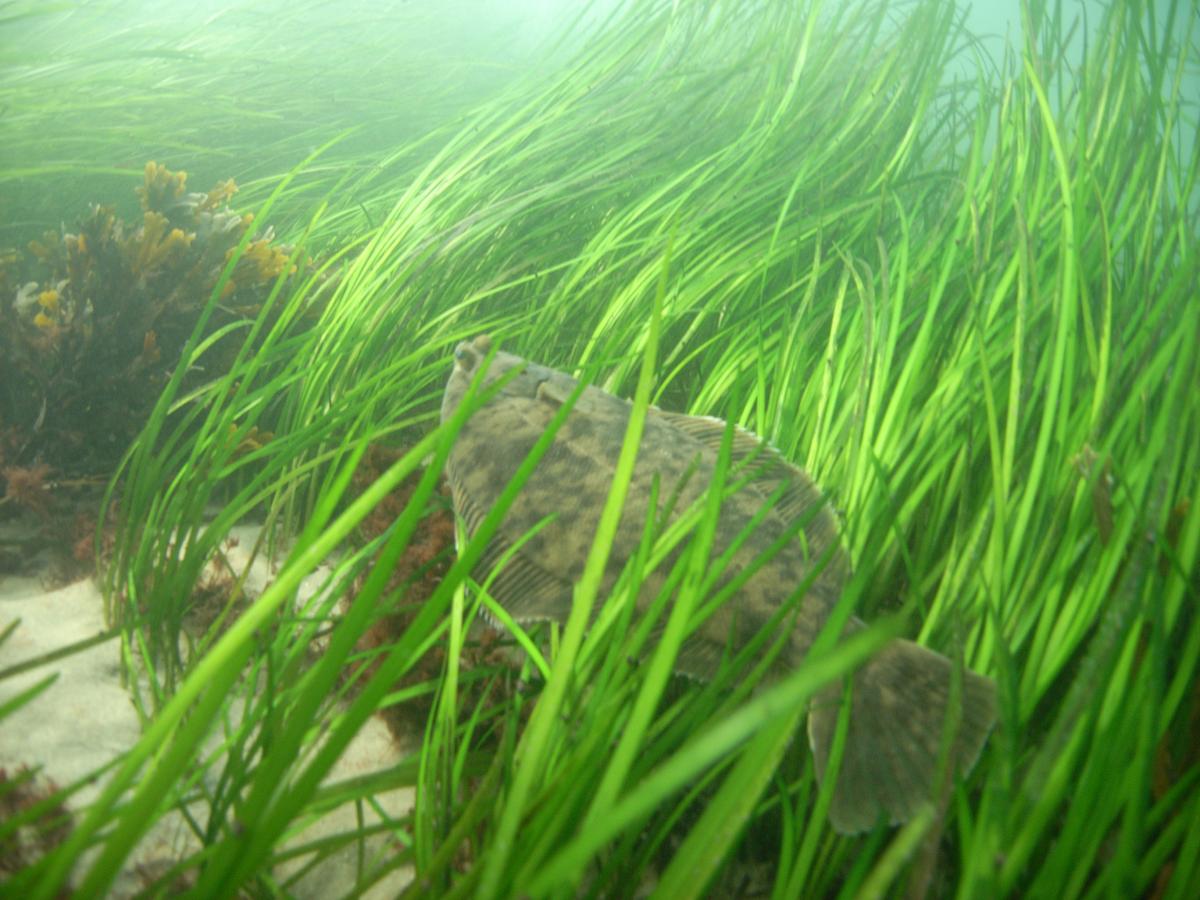
Seagrasses sustain many popular fish and other species, like this flounder swimming through an eelgrass bed. (Credit: NOAA)
The Green In The Blue: The Comeback Of The Chesapeake’s Underwater Grasses And What It Means For The Bay
Tuesday, Feb. 15, 2022
Speaker: Dr. Jonathan Lefcheck, SERC & Smithsonian Marine Global Earth Observatory
Over the last century, the mid-Atlantic’s underwater grasses have gone from one disaster to another—from wasting disease to hurricanes to nutrient pollution. But in the past few years, the Chesapeake Bay and Eastern Shore have witnessed some astounding comebacks. In our February Earth Optimism talk, join SERC marine ecologist Jonathan Lefcheck for a tour of seagrass resurgence throughout the region. He'll dive deeper into what's behind the recoveries, highlight the new life and other benefits that are returning with them, what to expect in the future, and how you can get involved through new participatory science initiatives. Discover how seagrasses are laying the foundation for a healthier, more bountiful Bay.
Sign up on Zoom to watch the recording
Keynote Robert Lee Forrest Lecture: From Global Change to Local Action
Tuesday, Oct. 19, 2021
Speaker: Dr. Katharine Hayhoe, Chief Scientist of The Nature Conservancy
Climate change isn’t just a problem for polar bears or future generations anymore – it’s affecting us here and now. In today's politically charged environment, are we still able to act on climate? In our series finale lecture, join Katharine Hayhoe as she untangles the complex science connecting our choices to future impacts and highlights actions underway right now to combat this critical issue.
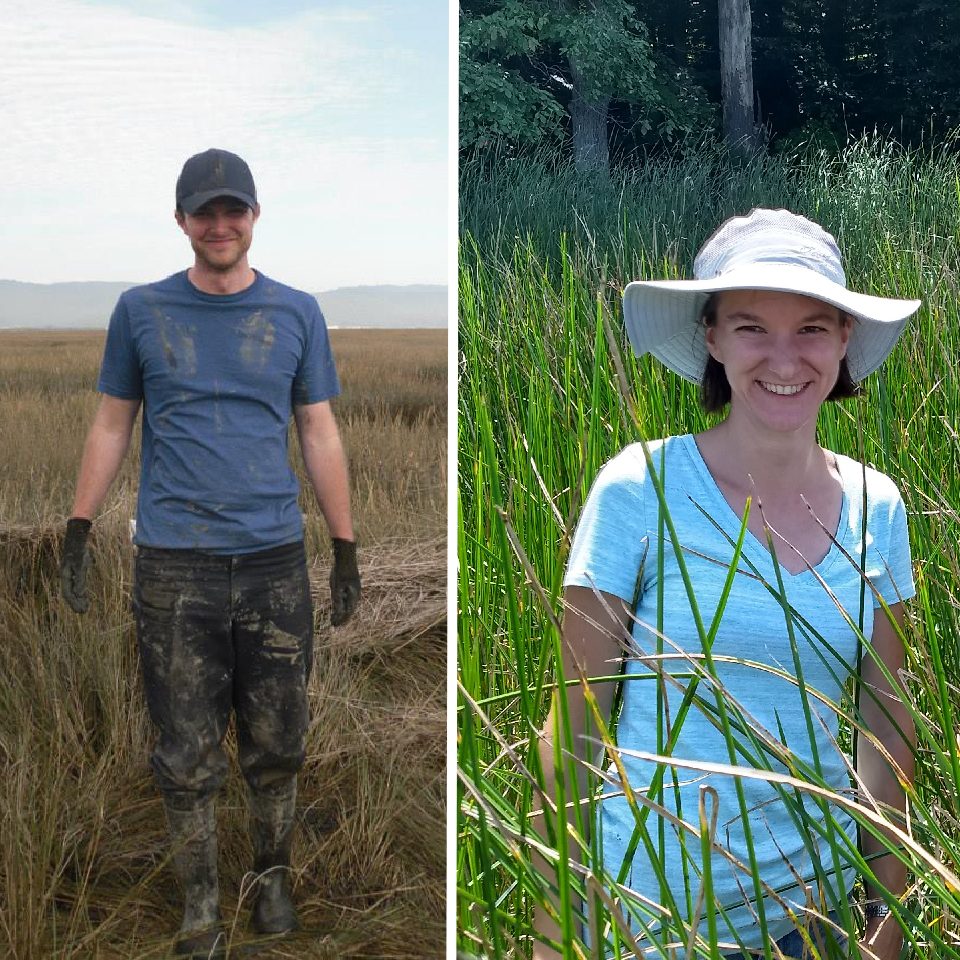
Left: James Holmquist (Credit: Lauren Brown); Right: Genevieve Noyce (Credit: Sairah Malkin/Horn Point Laboratory)
Stories from the Smithsonian's Wetland of the Future
Tuesday, Sept. 21, 2021
Speakers: Dr. James Holmquist and Dr. Genevieve Noyce, Smithsonian Environmental Research Center
How much can wetlands protect us from the impacts of climate change today, and will they still be able to a century from now? In SERC's Sept. 21 webinar, scientists James Holmquist and Genevieve Noyce will reveal the latest findings from experiments on SERC's Global Change Research Wetland, where scientists are fast-forwarding to the year 2100. They'll also explore how scientists are using big data to calculate what coastal wetlands around the world mean for Earth's carbon budget and efforts to mitigate climate change.
Sign up on Zoom to watch the recording
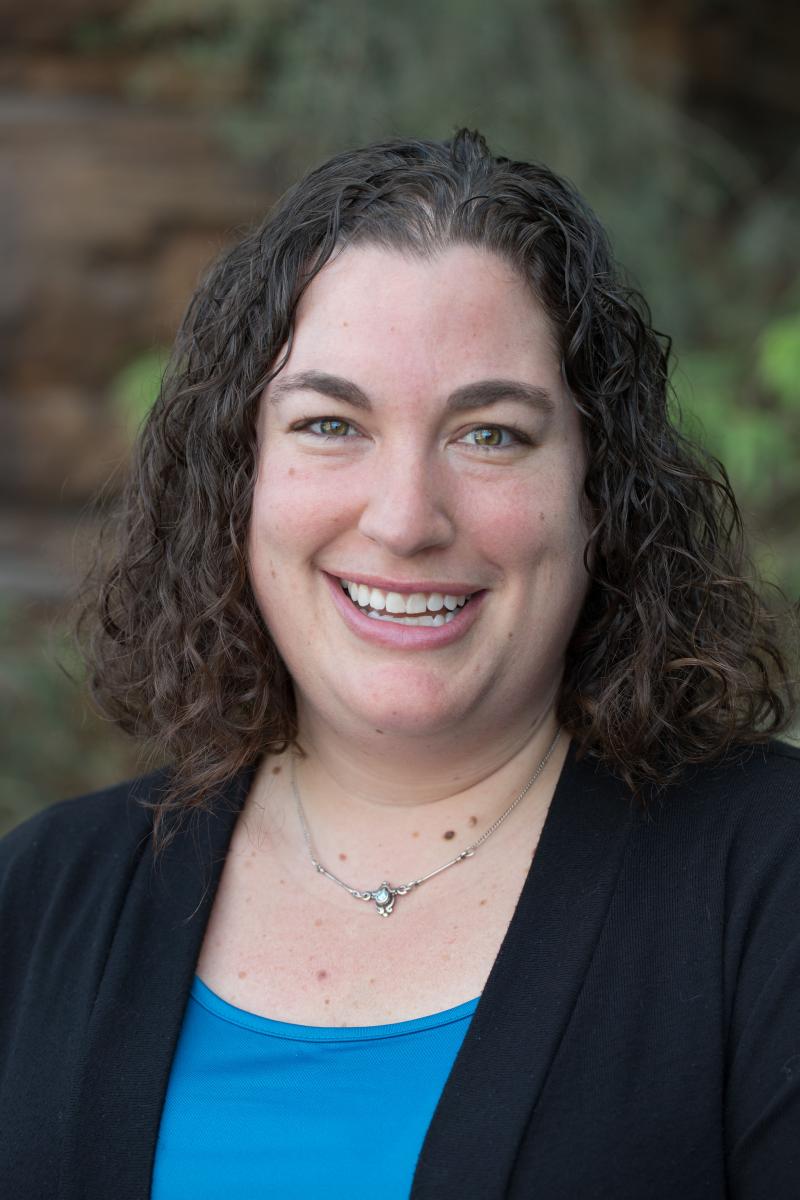
Jenn Dittmar (Credit: Theresa Keil, National Aquarium)
Sea Turtle Rehabilitation at the National Aquarium: The Conservation Impact from Massachusetts to Florida
Tuesday, Aug. 17, 2021
Speaker: Jennifer Dittmar, National Aquarium
Discover what goes into rescuing endangered sea turtles, with Animal Rescue Director Jennifer Dittmar of the National Aquarium! All seven of the world's sea turtle species are either threatened or endangered, though some are common, seasonal visitors to the mid-Atlantic and New England during warmer months. The National Aquarium has been rehabilitating sick and injured sea turtles for 30 years. But the conservation impact of this program reaches far beyond the waters of Maryland. The average sea turtle patient at the National Aquarium will travel more than 1,400 miles during rehabilitation—from the spot where it was stranded to its eventual release. In our August webinar, Dittmar will reveal the complex, team effort to conserve critically endangered sea turtles.
Sign up on Zoom to watch the recording
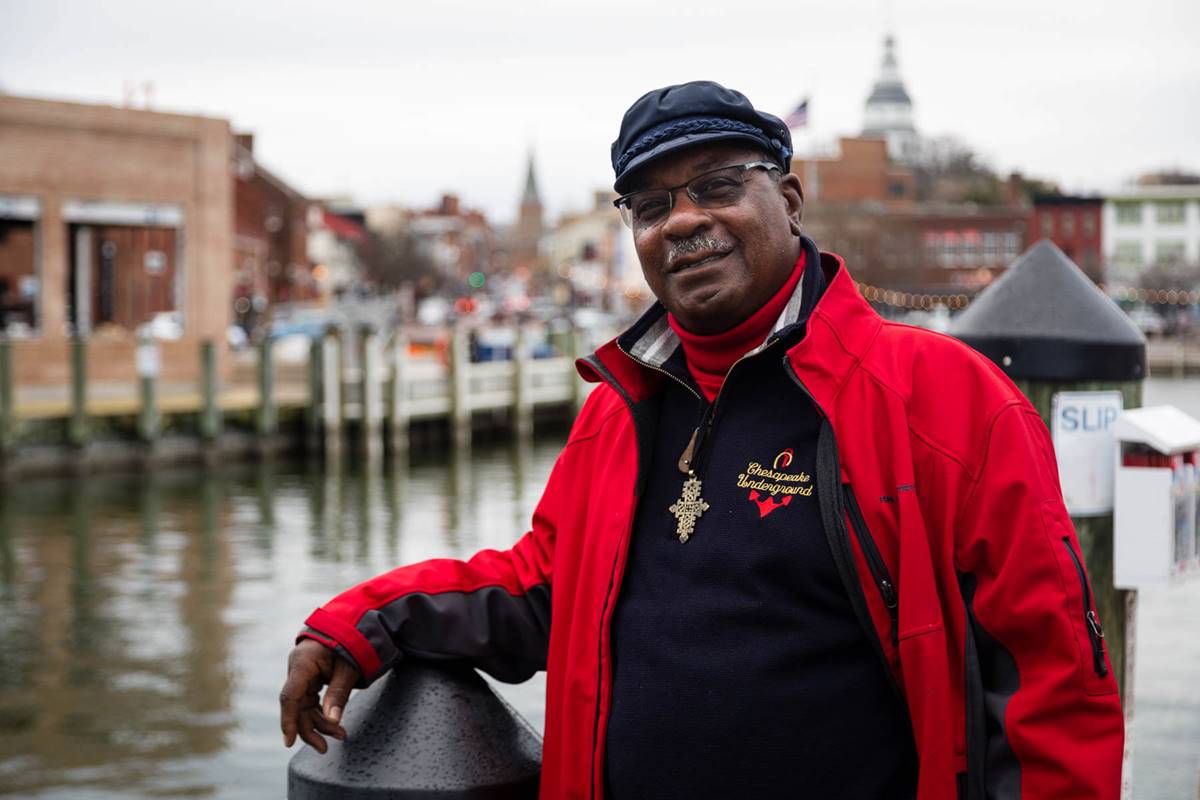
Vince Leggett. (Credit: Will Parson, Chesapeake Bay Program)
Through Ebony Eyes: Preserving the Legacy of Blacks on the Chesapeake
Tuesday, July 20, 2021
Speaker: Vince Leggett, Blacks of the Chesapeake Foundation, Founder and President
For over 200 years, Black men and women have kept the seafood and maritime industries alive on the Chesapeake Bay. Yet few history books have recognized their contributions. The Blacks of the Chesapeake Foundation, created by Vince Leggett, has amassed a rich collection of artifacts, oral histories and over 40,000 photos documenting their experiences. On July 20, Leggett will share some of their stories. He will highlight voices from two of his books, Blacks of the Chesapeake: An Integral Part of Maritime History and The Chesapeake Bay Through Ebony Eyes. Join us for a celebration of the Black men and women who transformed—and were transformed by—life on the water.
Sign up on Zoom to watch the recording
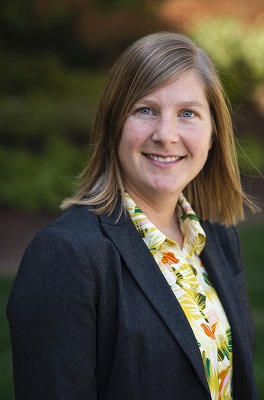
Dr. Karin Burghardt (Credit: Abby Robinson/University of Maryland)
Landscaping for Biodiversity: A plant-insect perspective
Tuesday, June 15, 2021
Speaker: Dr. Karin Burghardt, Smithsonian Environmental Research Center
Humans actively manage and alter the majority of earth's habitats including spaces very close to home. In this presentation, Dr. Karin Burghardt outlines ways that decisions within one's own personal scope of management (gardens, yards, parks, and other green spaces) alter plant/animal interactions, particularly the successful completion of the life cycles of insect herbivores. While insect pests are often maligned in garden settings, a wide array of insects are quietly performing essential functions for food-webs and ecosystems. In this talk, Dr. Burghardt introduces you to some of these amazing critters and suggests tweaks that can be made to your landscape practices such as native plant selection, yard care approaches, and pest management to retain biodiversity and function in the spaces we inhabit everyday.
Sign up on Zoom to watch the recording
Earlier Lectures
Audio or slides only
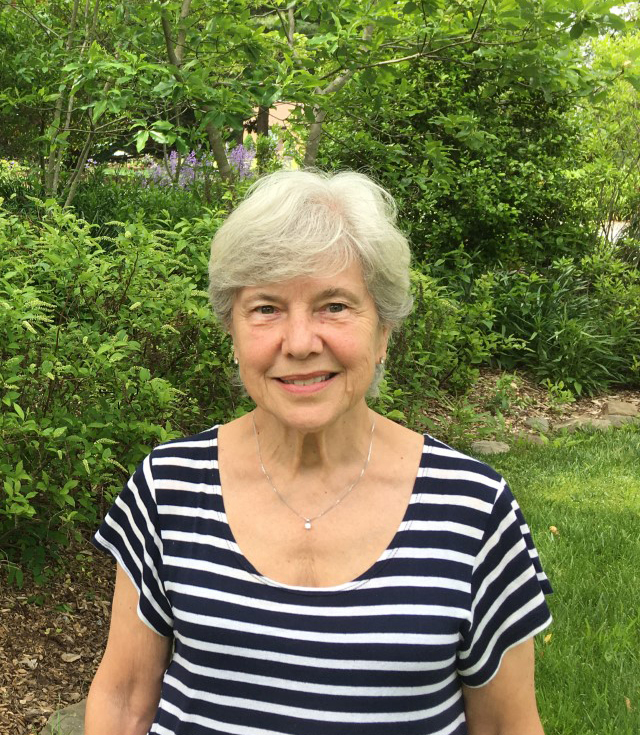
Cyrena Simons (Credit: Stoney Simons)
Bay-Wise Gardening To Help The Environment
Tuesday, June 16, 2020
Speaker: Cyrena Simons, Anne Arundel County Master Gardeners
While many are at home and gardening, there are many bay-friendly practices you can use to enhance your property and the environment. At our June virtual evening lecture, Master Gardener Cyrena Simons shares tips from the University of Maryland's Master Gardener Bay-Wise Program. Bay-wise gardening can take less work and less money, while attracting birds and butterflies to your garden. Cyrena also shares resources for getting free help with gardening questions. While this webinar focuses on examples from the Chesapeake, the Master Gardener Program has connections with state universities all across the country.
Download the webinar slides (pdf)
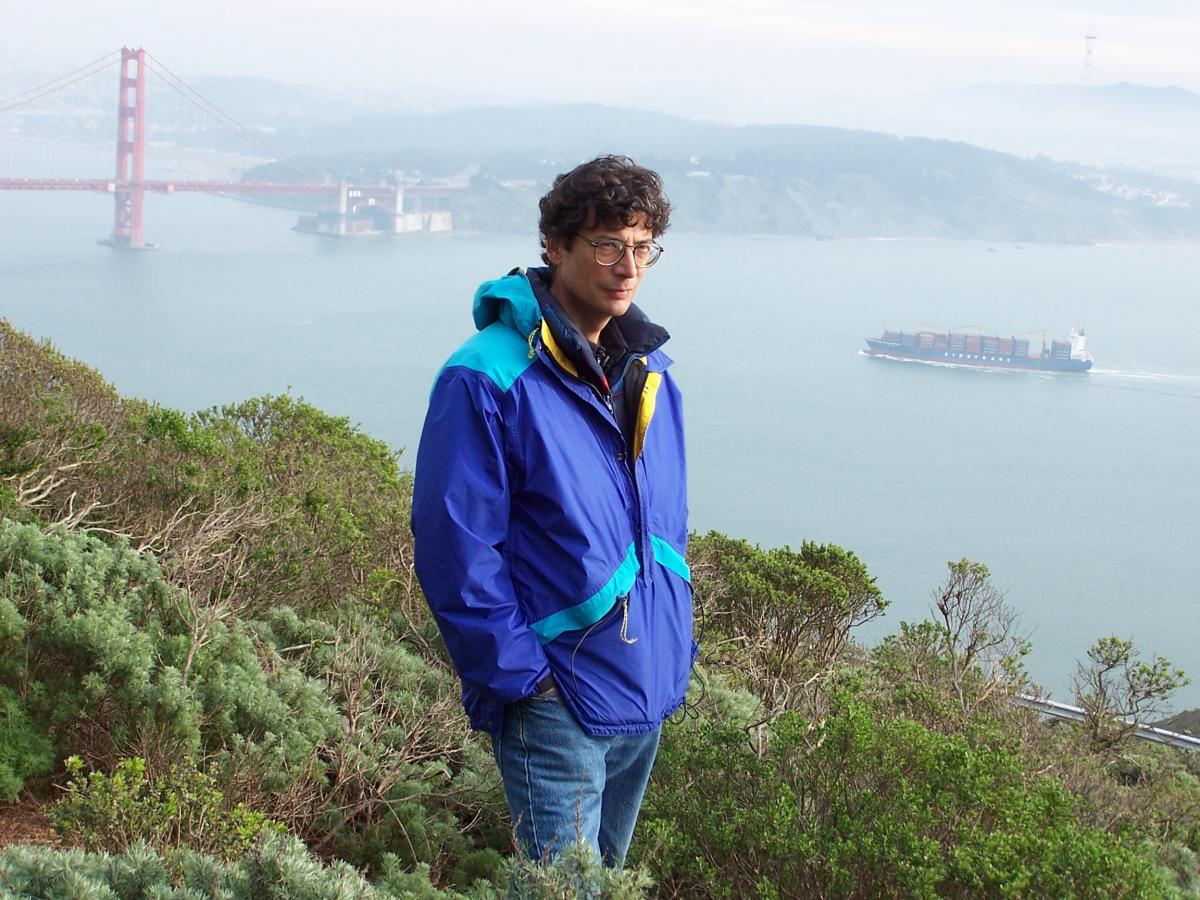
Greg Ruiz (Credit: SERC)
Global Trade, Ballast Water and Invasive Species on Ships
Tuesday, May 19, 2020
Speaker: Dr. Greg Ruiz, Smithsonian Environmental Research Center
Global trade is enabling invasive species to cross borders at unprecedented speeds. But it’s also triggered the rise of new technologies to combat them. In this talk, SERC marine biologist Greg Ruiz highlights some of the latest efforts to track and clean up the ballast water in ship hulls—a key way invasive species have crossed oceans—and the research that's helping prevent future invasions.
Listen to audio of lecture
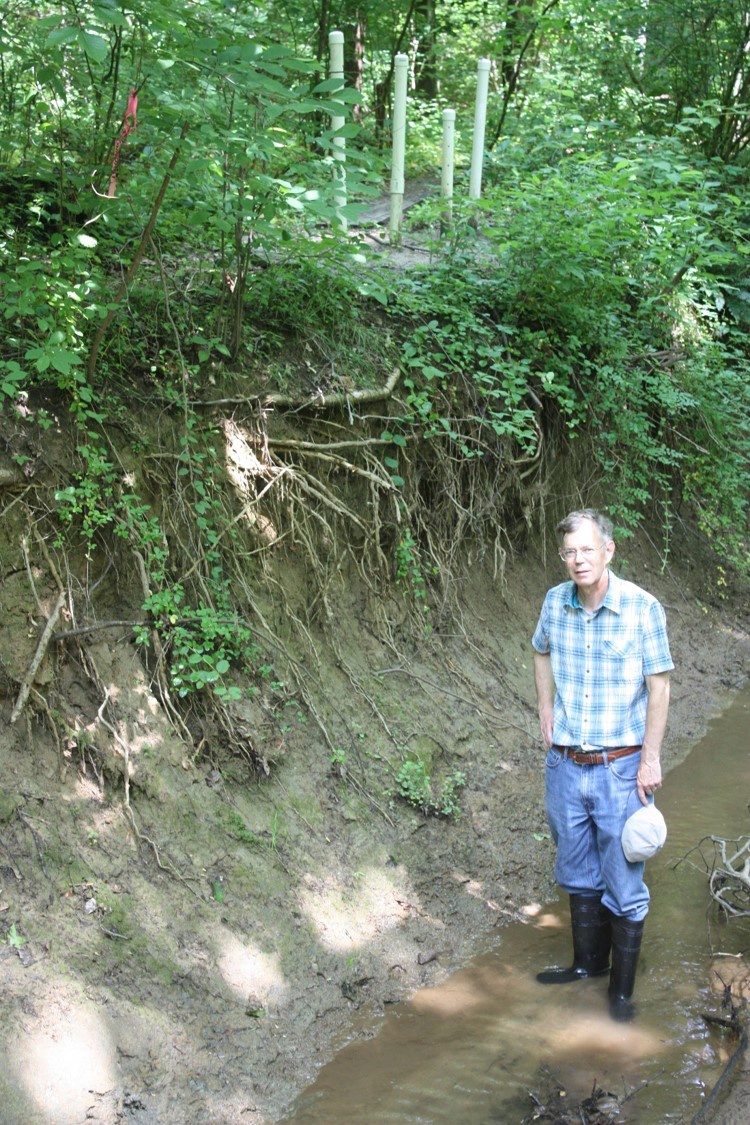
Tom Jordan (Credit: SERC)
City Stream, Country Stream: Getting a Clearer Picture of Stream Restorations
Tuesday, Feb. 18, 2020
Speaker: Dr. Tom Jordan, Smithsonian Environmental Research Center
Stream restorations, especially in urban watersheds, are a popular strategy for reducing nutrient loads to the Chesapeake Bay. However, the latest research suggests their effectiveness can vary. In this talk, SERC nutrient ecologist Tom Jordan compares two stream restorations his lab has been tracking: an urban one and a rural one. He reveals the different approaches each restoration took, and how each measured up in terms of improving water quality.
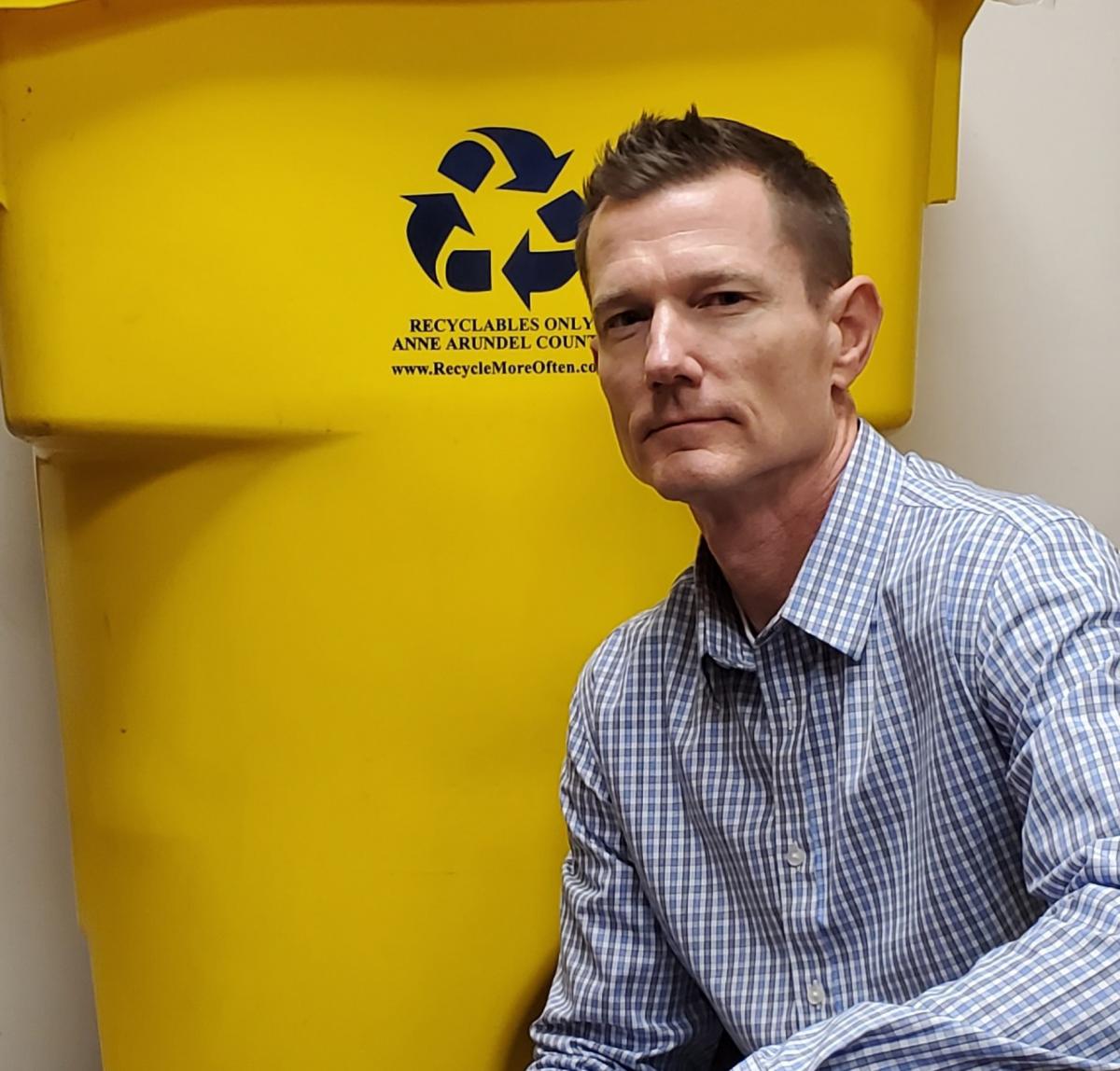
Richard Bowen (Credit: Kristin Lagana)
How to Recycle More and Recycle Right
Tuesday, Jan. 21, 2020
Speaker: Richard Bowen, Anne Arundel County Dept. of Public Works
In our kickoff lecture of 2020, Richard Bowen, recycling program manager for Anne Arundel County, answers questions about what can and can't be recycled in the county and the services the county offers to help residents recycle more effectively. Get an inside look at what happens to the items we throw out.
Listen to audio of the lecture
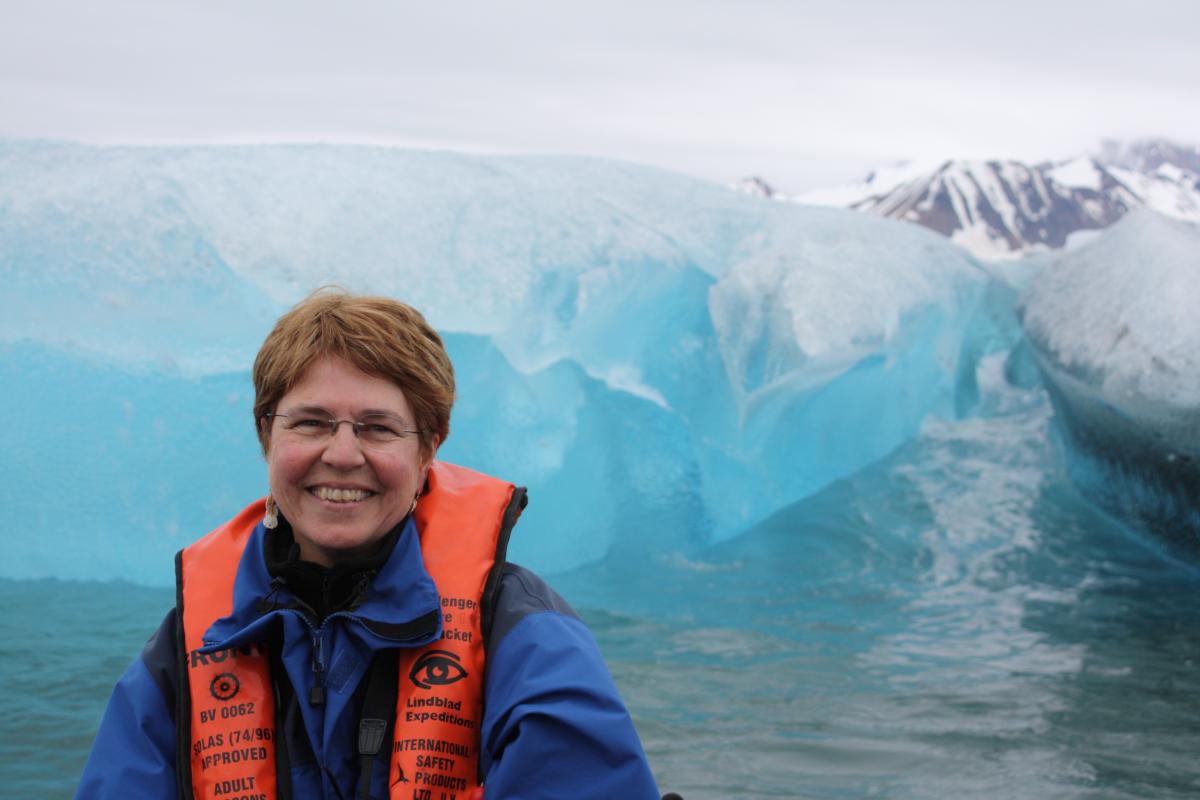
Jane Lubchenco (Credit: NOAA)
2019 Keynote Lecture - The Ocean: Our Future
Tuesday, Oct. 15, 2019
Speaker: Dr. Jane Lubchenco, former administrator of NOAA
Our grand finale lecture of 2019 featured marine biologist Jane Lubchenco, the first female administrator of the National Oceanic and Atmospheric Administration (NOAA). In this talk, Dr. Lubchenco took stock of the challenges in achieving a healthy ocean, while highlighting the encouraging actions underway to address these problems. Focusing on science-based solutions embraced by communities, businesses, and governments, she connected the dots between the health of oceans and coasts, and our own health and prosperity.
Listen to audio of the lecture
